मुरलीकांत पेटकर एक ऐसा नाम है जो भारत में पैरा-स्पोर्ट्स की दुनिया में गहराई से गूंजता है। वे लचीलापन, दृढ़ संकल्प और असाधारण उपलब्धि के प्रतीक के रूप में खड़े हैं, जो देश भर के पैरा-एथलीटों के लिए एक पथप्रदर्शक बन गए हैं। मुख्य रूप से भारत के पहले पैरालिंपिक स्वर्ण पदक विजेता के रूप में जाने जाने वाले पेटकर की कहानी विपरीत परिस्थितियों के खिलाफ जीत की कहानी है, एक ऐसा सफर जो विकलांग और सक्षम दोनों तरह के एथलीटों की पीढ़ियों को प्रेरित करता रहता है।पेटकर की उपलब्धि न केवल एक व्यक्तिगत जीत थी, बल्कि भारतीय खेल इतिहास में एक यादगार क्षण था। 1972 के पैरालिंपिक में उनकी सफलता से पहले, भारत में पैरा-स्पोर्ट्स का क्षेत्र अपेक्षाकृत अविकसित था, जिसमें विकलांग एथलीटों के लिए सीमित मान्यता या समर्थन था। मुरलीकांत पेटकर की सफलता ने भारत में पैरा-स्पोर्ट्स को सुर्खियों में ला दिया, जिसने पैरा-एथलीटों के साथ देश के जुड़ाव में एक महत्वपूर्ण मोड़ ला दिया।1972 के हीडलबर्ग पैरालिंपिक में उनका स्वर्ण पदक – जहाँ उन्होंने 50 मीटर फ़्रीस्टाइल तैराकी स्पर्धा जीती – न केवल एथलेटिक उत्कृष्टता का प्रदर्शन था, बल्कि दृढ़ता की शक्ति का भी प्रमाण था। भारतीय सेना में सेवा के दौरान एक जीवन-परिवर्तनकारी घटना के बाद पैरा-स्पोर्ट्स में पेटकर की यात्रा शुरू हुई, जिसने उन्हें स्थायी विकलांगता के साथ छोड़ दिया। जो एक झटका हो सकता था, वह एक पैरा-एथलीट के रूप में उनके उल्लेखनीय करियर के लिए उत्प्रेरक बन गया।स्वर्ण पदक से परे, पेटकर की उपलब्धियाँ उनके चरित्र का प्रतिबिंब हैं: एक ऐसे व्यक्ति जिसने शारीरिक सीमाओं को अपने भाग्य को परिभाषित करने से मना कर दिया। उनकी सफलता न केवल एक व्यक्तिगत उपलब्धि थी, बल्कि भारतीय खेलों के लिए एक निर्णायक क्षण भी थी, क्योंकि इसने देश में विकलांग एथलीटों की अप्रयुक्त क्षमता को उजागर किया।इस प्रकार, मुरलीकांत पेटकर की विरासत उस पूल से कहीं आगे तक फैली हुई है जहाँ उन्होंने इतिहास बनाया। वे साहस और उत्कृष्टता की अथक खोज के प्रतीक हैं, जो हमेशा के लिए भारतीय खेलों के इतिहास में एक अग्रणी व्यक्ति के रूप में अंकित हैं, जिन्होंने न केवल रिकॉर्ड तोड़े बल्कि बाधाओं को भी तोड़ा।प्रारंभिक जीवन और पृष्ठभूमिमुरलीकांत पेटकर का जन्म 1945 में भारत के महाराष्ट्र के एक छोटे से गाँव में हुआ था। एक साधारण परिवार में पले-बढ़े पेटकर के शुरुआती वर्षों में वही साधारण आकांक्षाएँ और चुनौतियाँ थीं, जिनका सामना ग्रामीण भारत के कई बच्चे करते हैं। हालाँकि, किसी को भी नहीं पता था कि यह युवा लड़का, अपनी अंतर्निहित एथलेटिक क्षमता के साथ, पैरा-स्पोर्ट्स की दुनिया में एक अग्रणी व्यक्ति बन जाएगा। उनका परिवार, हालाँकि संपन्न नहीं था, लेकिन कड़ी मेहनत और अनुशासन को महत्व देता था, जो बाद में पेटकर की सफलता का आधार बना।छोटी उम्र से ही, पेटकर ने खेलों में रुचि दिखाई। एथलेटिक्स के प्रति उनका जुनून उनके स्कूल के वर्षों के दौरान पोषित हुआ, जहाँ वे जल्द ही अपनी चपलता और दृढ़ संकल्प के लिए जाने जाने लगे। खेलों में उनकी रुचि ने अंततः उन्हें 1960 के दशक में भारतीय सेना में शामिल होने के लिए प्रेरित किया, एक ऐसा निर्णय जिसने उन्हें न केवल एक अनुशासित वातावरण प्रदान किया, बल्कि एक संरचित सेटिंग में अपनी शारीरिक क्षमताओं को आगे बढ़ाने का अवसर भी दिया। सेना उनके जीवन की सबसे बड़ी चुनौती की पृष्ठभूमि बन गई, लेकिन उनकी अंतिम जीत भी।हालांकि, 1965 में पेटकर के जीवन ने एक नाटकीय मोड़ लिया। एक नियमित सैन्य प्रशिक्षण अभ्यास के दौरान, पेटकर एक शूटिंग दुर्घटना में दुखद रूप से घायल हो गए, जिससे उन्हें स्थायी विकलांगता हो गई। इस घटना के परिणामस्वरूप उनका बायां हाथ काटना पड़ा, और चोट के कारण उन्हें ठीक होने में काफी कठिनाई हुई। जो कई लोगों के लिए निराशा का क्षण हो सकता था, वह पेटकर के लिए एक महत्वपूर्ण मोड़ बन गया। अपने हाथ के चले जाने से उन्हें उपलब्धियों से भरे जीवन को जीने से नहीं रोका जा सका। वास्तव में, इसने उन्हें एक नए रास्ते पर डाल दिया – एक ऐसा रास्ता जिसने उन्हें विकलांग एथलीटों के लिए क्या संभव है, इसे फिर से परिभाषित करने में मदद की।भारतीय सेना में करियर

source: https://murlikantpetkar.com/भारतीय सेना में मुरलीकांत पेटकर का करियर वह आधार था जिसने उनके चरित्र, अनुशासन और शारीरिक फिटनेस को आकार दिया – ऐसे गुण जो बाद में पैरा-एथलीट के रूप में उनकी सफलता में महत्वपूर्ण साबित हुए। वह 19 साल की उम्र में भारतीय सेना में शामिल हो गए, अपने देश की सेवा करने और बहादुरी और लचीलेपन के सैन्य आदर्शों पर खरा उतरने के लिए उत्सुक थे। शुरुआत में, पेटकर ने अपने प्रशिक्षण में खूब तरक्की की, विभिन्न शारीरिक गतिविधियों में उत्कृष्ट प्रदर्शन किया, जिसने एक होनहार युवा सैनिक के रूप में उनकी प्रतिष्ठा बनाई।सेना में उनके कार्यकाल ने उन्हें अपनी एथलेटिक क्षमताओं को निखारने का मौका दिया, जिससे यह उनके शुरुआती करियर के लिए एक आदर्श माहौल बन गया। सैन्य जीवनशैली, जिसमें ताकत, धीरज और अनुशासन पर ध्यान केंद्रित किया जाता था, पेटकर के लिए बिल्कुल उपयुक्त थी। लेकिन 1965 में एक प्रशिक्षण सत्र के दौरान उनके जीवन की दिशा हमेशा के लिए बदल गई। एक प्रशिक्षण दुर्घटना से जुड़ी एक दुखद घटना के परिणामस्वरूप पेटकर को गोली लग गई, जिससे उनका बायाँ हाथ कट गया।इस भयानक चोट ने उन्हें सेना छोड़ने और अपने जीवन का पुनर्मूल्यांकन करने के लिए मजबूर कर दिया। शारीरिक दर्द तो बहुत तीव्र था, लेकिन विकलांगता के साथ जीवन को समायोजित करने की भावनात्मक और मनोवैज्ञानिक चुनौती सबसे कठिन साबित हुई। हालांकि, पेटकर की अदम्य भावना कभी डगमगाई नहीं। उन्होंने अपने हाथ के नुकसान को अंत के रूप में नहीं देखा, बल्कि इसे फिर से आविष्कार करने के अवसर के रूप में देखा। विपरीत परिस्थितियों का सामना करते हुए, उन्होंने अपनी ऊर्जा को पुनर्वास में लगाने का फैसला किया, न केवल जीने के तरीके बल्कि अपनी नई परिस्थितियों में पनपने के तरीके भी तलाशे।विकलांगता के साथ जीवन को अपनाने की चुनौतियों के बावजूद, पेटकर शारीरिक फिटनेस के लिए प्रतिबद्ध रहे। उन्होंने अपनी ताकत और सहनशक्ति को वापस पाने के लिए विभिन्न प्रकार के व्यायाम और खेलों के साथ प्रयोग करना शुरू किया। इसी दौरान उन्हें पैरा-स्पोर्ट्स से परिचित कराया गया, एक ऐसा क्षेत्र जिसने उन्हें एक नया उद्देश्य दिया। एक सैनिक से पैरा-एथलीट बनने का उनका परिवर्तन धीरे-धीरे हुआ, जो दृढ़ता और दृढ़ संकल्प से चिह्नित था। सेना में उन्होंने जो अनुशासन सीखा था, उसने उन्हें अपने नए जीवन को अपनाने में महत्वपूर्ण भूमिका निभाई और अंततः पैरा-स्पोर्ट्स की दुनिया में उनकी सफलता का कारण बना।पैरा-स्पोर्ट्स में यात्रा

मुरलीकांत पेटकर की पैरा-स्पोर्ट्स में यात्रा दुखद दुर्घटना के बाद शुरू हुई, जिसने उन्हें स्थायी विकलांगता के साथ छोड़ दिया। चोट के बाद की शुरुआती अवधि शारीरिक और भावनात्मक संघर्षों से भरी थी, क्योंकि उन्होंने अपनी नई वास्तविकता को समायोजित किया। हालाँकि, उनके लचीलेपन और दृढ़ संकल्प ने जल्द ही उन्हें खेलों की ओर धकेल दिया, एक ऐसा क्षेत्र जहाँ वे अपना आत्मविश्वास वापस पा सकते थे और अपनी शारीरिक क्षमताओं को नए तरीकों से परख सकते थे। पुनर्वास में कई महीने बिताने के बाद, पेटकर को कुछ दयालु व्यक्तियों द्वारा पैरा-स्पोर्ट्स की दुनिया से परिचित कराया गया, जिन्होंने उनकी क्षमता को पहचाना। उन्होंने विकलांग लोगों के लिए स्थानीय प्रतियोगिताओं में भाग लेना शुरू कर दिया, जहाँ उन्होंने एथलेटिकवाद के लिए अपने प्यार को फिर से खोजना शुरू किया। हालाँकि शुरू में अनिश्चित, पेटकर की प्राकृतिक एथलेटिक क्षमताएँ प्रशिक्षण के साथ-साथ अपनी नई परिस्थितियों के अनुकूल ढलने लगीं। तैराकी में ही उन्हें एक नया जुनून मिला। पानी, जिसे उन्होंने कभी एक मनोरंजक गतिविधि के रूप में अनुभव किया था, जल्द ही एक ऐसी जगह बन गया जहाँ वे खुद को चुनौती दे सकते थे। उनके सैन्य प्रशिक्षण के माध्यम से उनके अनुशासन ने उन्हें प्रतिस्पर्धी तैराकी की माँगों के अनुकूल ढलने में मदद की। पेटकर ने लगातार प्रशिक्षण लिया, कभी-कभी बिना उचित सुविधाओं या समर्थन के, लेकिन उनका धैर्य और दृढ़ संकल्प कभी कम नहीं हुआ। बहुत जल्द ही उनकी प्रतिभा को बड़े पैमाने पर पहचाना जाने लगा, जिससे अंततः उन्हें अंतर्राष्ट्रीय मंच पर जगह मिली। पैरा-स्पोर्ट्स में उनका संक्रमण आत्म-खोज की यात्रा थी, जहाँ पेटकर ने न केवल अपनी शारीरिक शक्ति का पुनर्निर्माण किया, बल्कि पैरा-एथलीट होने के साथ आने वाली अनूठी चुनौतियों को स्वीकार करना भी सीखा।पैरा-स्विमिंग में उपलब्धियाँ

मुरलीकांत पेटकर की सबसे बड़ी उपलब्धि 1972 के हीडलबर्ग पैरालंपिक खेलों में मिली, जहाँ वे भारत के पहले पैरालंपिक स्वर्ण पदक विजेता बने। यह जीत सिर्फ़ पेटकर के लिए ही नहीं बल्कि पूरे देश के लिए अभूतपूर्व थी, क्योंकि इसने भारत में पैरा-स्पोर्ट्स को पहचान दिलाई। 50 मीटर फ़्रीस्टाइल इवेंट में पेटकर की जीत एक ऐतिहासिक क्षण था जिसने उनकी विरासत को परिभाषित किया।पेटकर का स्वर्ण पदक प्रदर्शन किसी शानदार प्रदर्शन से कम नहीं था। दुनिया भर के कुछ बेहतरीन एथलीटों के साथ प्रतिस्पर्धा करते हुए, उन्होंने इस इवेंट में सिर्फ़ 37.33 सेकंड में दौड़ पूरी करके विश्व रिकॉर्ड बनाया। उस समय, यह न केवल देश के लिए बल्कि पैरा-एथलीटों के बड़े वैश्विक समुदाय के लिए भी एक बड़ी उपलब्धि थी। तैराकी में पेटकर की सफलता ने साबित कर दिया कि शारीरिक सीमाएँ किसी को भी महानता हासिल करने से नहीं रोक सकतीं। इसने दुनिया को दिखाया कि पर्याप्त दृढ़ संकल्प, कड़ी मेहनत और ध्यान के साथ, विकलांग एथलीट वैश्विक मंच पर उत्कृष्ट प्रदर्शन कर सकते हैं।यह जीत इसलिए महत्वपूर्ण थी क्योंकि यह सामाजिक बाधाओं को तोड़ने का प्रतीक थी। ऐसे दौर में जब पैरा-स्पोर्ट्स को व्यापक मान्यता नहीं मिली थी, पेटकर की उपलब्धि ने भारत को अंतरराष्ट्रीय पैरा-स्पोर्ट्स समुदाय के मानचित्र पर ला खड़ा किया। उनके पदक ने भारत सरकार और जनता को विकलांग एथलीटों की क्षमता के बारे में एक मजबूत संदेश भी दिया, जिससे देश में पैरा-एथलीटों के लिए अधिक रुचि और समर्थन पैदा हुआ।स्वर्ण पदक से परे, 1972 के पैरालिंपिक में पेटकर के प्रदर्शन ने भारत में पैरा-एथलीटों की भावी पीढ़ियों के लिए आधार तैयार करने में मदद की। उनकी उपलब्धि एक प्रेरणा बनी हुई है, एक अनुस्मारक है कि परिस्थितियाँ चाहे कैसी भी हों, उत्कृष्टता प्राप्त की जा सकती है।अन्य खेलों में योगदानजबकि पेटकर तैराकी में अपनी उपलब्धियों के लिए सबसे ज्यादा जाने जाते हैं, अन्य खेलों, विशेष रूप से भाला और टेबल टेनिस में उनके योगदान ने एक एथलीट के रूप में उनकी बहुमुखी प्रतिभा को और भी अधिक दर्शाया है। तैराकी में अपनी सफलता के बाद, प्रतिस्पर्धा और उत्कृष्टता के लिए पेटकर की भूख ने उन्हें अन्य पैरा-स्पोर्ट्स की खोज करने के लिए प्रेरित किया, जहाँ उन्होंने एक महत्वपूर्ण प्रभाव भी डाला।भाला फेंक में, पेटकर ने राष्ट्रीय स्तर की प्रतियोगिताओं में भाग लिया, जिससे एक बहुमुखी एथलीट के रूप में उनकी प्रतिष्ठा और मजबूत हुई। हालाँकि तैराकी उनका प्राथमिक लक्ष्य रहा, लेकिन वे एथलेटिक्स के क्षेत्र में और अधिक प्रशंसा पाने में सफल रहे। भाला फेंक में उनकी उपलब्धियों ने अन्य पैरा-एथलीटों के लिए नए अवसर खोले, जिससे यह साबित हुआ कि कोई व्यक्ति एक से अधिक खेलों में उत्कृष्टता प्राप्त कर सकता है। एथलेटिक्स और अन्य खेलों में उनकी भागीदारी ने पैरा-एथलीटों के लिए दायरे को व्यापक बनाने के महत्व के बारे में जागरूकता पैदा करने में मदद की और विभिन्न क्षेत्रों में प्रतिभा खोज के लिए एक व्यापक मंच प्रदान किया।इसके अतिरिक्त, पेटकर ने टेबल टेनिस में सक्रिय रुचि ली, जहाँ उन्होंने फिर से सटीकता और ध्यान की आवश्यकता वाले खेल में अच्छा प्रदर्शन करने की अपनी क्षमता का प्रदर्शन किया। कई खेलों में भाग लेकर, उन्होंने पैरा-एथलीटों की विभिन्न विषयों में चमकने की क्षमता का प्रदर्शन किया, जिससे उनकी क्षमताओं के बारे में पूर्वाग्रहों को चुनौती मिली।इन खेलों में पेटकर के योगदान ने कई विषयों में एथलीटों को प्रशिक्षित करने और विकसित करने के महत्व पर ध्यान आकर्षित करने में मदद की। उनकी बहु-खेल भागीदारी ने इस विचार को पुष्ट किया कि पैरा-खेलों में सफलता एक इवेंट या श्रेणी तक सीमित नहीं है और विकलांग एथलीटों में कई गतिविधियों में उत्कृष्टता प्राप्त करने की क्षमता है। विभिन्न खेलों में उत्कृष्टता की उनकी खोज एथलीटों को विभिन्न प्रतिभाओं को आगे बढ़ाने और विभिन्न क्षेत्रों में बाधाओं को तोड़ने के लिए प्रेरित करती रहती है।मान्यता और सम्मान

मुरलीकांत पेटकर की उपलब्धियाँ किसी की नज़र से नहीं छूटीं। पिछले कुछ वर्षों में, उन्हें खेलों में उनके योगदान और पैरा-स्पोर्ट्स की दुनिया में अग्रणी होने के लिए कई सम्मान और पुरस्कार मिले। सबसे प्रतिष्ठित पुरस्कारों में से एक पद्म श्री था, जो भारत के सर्वोच्च नागरिक पुरस्कारों में से एक है, जिसे उन्हें पैरा-स्पोर्ट्स में उनकी उल्लेखनीय उपलब्धियों के लिए 2012 में प्रदान किया गया था। यह सम्मान एक एथलीट के रूप में पेटकर की विरासत का प्रमाण था, जिन्होंने न केवल अपने देश को गौरव दिलाया, बल्कि पैरा-एथलीटों की भावी पीढ़ियों के लिए मार्ग भी प्रशस्त किया। पद्म श्री के अलावा, पेटकर को अपने पूरे जीवन में कई अन्य सम्मान मिले।1972 के पैरालिंपिक में उनकी सफलता ने उन्हें वैश्विक पहचान दिलाई और उनकी कहानी को अंतरराष्ट्रीय मंचों पर मनाया गया। उन्हें विभिन्न कार्यक्रमों और सेमिनारों में आमंत्रित किया गया, जहाँ उन्होंने अपनी प्रेरक यात्रा साझा की, दूसरों को चुनौतियों से पार पाने और अपने सपनों को पूरा करने के लिए प्रेरित किया। इसके अलावा, पेटकर के प्रयास उनकी व्यक्तिगत उपलब्धियों से कहीं आगे निकल गए। वे विकलांग एथलीटों के अधिकारों के लिए एक वकील बन गए, उन्होंने अपने मंच का उपयोग भारत में पैरा-स्पोर्ट्स के लिए अधिक समर्थन और संसाधनों के लिए किया। उनकी वकालत ने पैरा-एथलीटों को मुख्यधारा के खेल आयोजनों में शामिल करने के महत्व के बारे में जागरूकता बढ़ाने में मदद की, सरकार और निजी संगठनों को विकलांग एथलीटों के लिए बेहतर बुनियादी ढांचे और प्रशिक्षण सुविधाओं में निवेश करने के लिए प्रोत्साहित किया।पेटकर को उनके जीवन भर मिली मान्यता और सम्मान ने न केवल एक पैरा-एथलीट के रूप में उनकी सफलता को उजागर किया, बल्कि भारतीय खेलों के परिदृश्य को बदलने में उनकी भूमिका को भी उजागर किया, विशेष रूप से विकलांग एथलीटों के लिए। उनकी विरासत उन्हें मिले पुरस्कारों और उनके द्वारा प्रेरित किए जाने वाले जीवन में जीवित है।भारत में पैरा-एथलीट के रूप में चुनौतियाँएक पैरा-एथलीट के रूप में मुरलीकांत पेटकर की उल्लेखनीय यात्रा अपनी महत्वपूर्ण चुनौतियों के बिना नहीं थी। वैश्विक मंच पर उनकी अभूतपूर्व उपलब्धियों के बावजूद, उनका मार्ग बाधाओं से भरा था, जिसका मुख्य कारण 1960 और 1970 के दशक के दौरान भारत में विकलांग एथलीटों के लिए मौजूद सामाजिक और बुनियादी ढाँचागत सीमाएँ थीं।पेटकर के सामने सबसे बड़ी समस्या पैरा-एथलीटों के लिए उचित सुविधाओं और प्रशिक्षण संसाधनों की कमी थी। उन शुरुआती दिनों में, विकलांग एथलीटों के लिए सुसज्जित सुलभ स्विमिंग पूल या खेल के मैदान दुर्लभ थे, और कई विकलांग एथलीटों को उप-इष्टतम परिस्थितियों में प्रशिक्षण लेना पड़ता था। पेटकर के लिए, तैराकी का अभ्यास करने के लिए उपयुक्त स्थान ढूँढ़ना एक संघर्ष था। उन्हें अक्सर सीमित संसाधनों, अस्थायी परिस्थितियों में प्रशिक्षण और सफल होने के लिए अपने दृढ़ संकल्प पर निर्भर रहना पड़ता था। विकलांग एथलीटों के लिए विशेष कोचों की कमी एक और बाधा थी जिसे उन्हें पार करना था। पेटकर को अपने कौशल को निखारने के लिए काफी हद तक अपनी पहल पर निर्भर रहना पड़ा, और कई बार उन्हें परीक्षण और त्रुटि से सीखना पड़ा।एक और महत्वपूर्ण चुनौती विकलांगता के प्रति सामाजिक दृष्टिकोण थी। भारत में, विकलांग व्यक्तियों की धारणा अक्सर रूढ़िवादिता में निहित थी जो सामाजिक और पेशेवर समावेशन में बाधा डालती थी। पेटकर सहित पैरा-एथलीटों को मुख्यधारा के खेलों में “वास्तविक” प्रतियोगियों के रूप में नहीं देखा जाता था। उनकी उपलब्धियों को अक्सर खारिज कर दिया जाता था, और उन्हें प्रायोजन, मान्यता और समर्थन के मामले में हाशिए पर रखा जाता था। संस्थागत समर्थन की कमी ने पेटकर और अन्य विकलांग एथलीटों के लिए आगे बढ़ना और भी मुश्किल बना दिया। इन व्यवस्थागत बाधाओं के बावजूद, पेटकर अपने लक्ष्य पर केंद्रित रहे और यह साबित करने के लिए अथक प्रयास किया कि विकलांग एथलीट उच्चतम स्तर पर प्रदर्शन कर सकते हैं।भारत में विकलांग एथलीटों के लिए वित्तीय सहायता भी बहुत कम थी, खासकर 1970 के दशक में। पेटकर को अपनी यात्रा और उपकरणों की लागत खुद ही उठानी पड़ती थी और कई बार उन्हें अपने सफ़र का समर्थन करने के लिए प्रायोजक खोजने में भी संघर्ष करना पड़ता था। फिर भी, इन सभी असफलताओं के बावजूद, पेटकर की अटूट भावना और अपने खेल के प्रति समर्पण ने उन्हें आगे बढ़ने के लिए प्रेरित किया। इन भारी चुनौतियों के बावजूद उनकी सफलता उनके असाधारण लचीलेपन और दृढ़ संकल्प का प्रमाण थी जिसने उनके करियर को परिभाषित किया।विरासत और प्रभावमुरलीकांत पेटकर की विरासत न केवल पैरा-स्पोर्ट्स में उनकी उपलब्धियों से परिभाषित होती है, बल्कि भारत में विकलांग एथलीटों के भविष्य पर उनके गहन प्रभाव से भी परिभाषित होती है। 1972 के पैरालिंपिक में उनका ऐतिहासिक स्वर्ण पदक भारतीय खेलों के इतिहास में एक महत्वपूर्ण क्षण था, न केवल इसकी दुर्लभता के कारण बल्कि इसलिए भी कि इसने एक स्पष्ट संदेश दिया: विकलांग एथलीट खेल उपलब्धि के उच्चतम सोपानों तक पहुँचने में सक्षम हैं।पेटकर की जीत ने गहरे सामाजिक मानदंडों को चुनौती दी और कई विकलांग व्यक्तियों के लिए दरवाजे खोले, जिन्हें लंबे समय से खेलों में अवसरों से वंचित रखा गया था। उनकी सफलता ने भारत में विकलांग एथलीटों को सशक्त बनाने पर केंद्रित एक बढ़ते आंदोलन को जन्म दिया, जिसके परिणामस्वरूप पैरा-स्पोर्ट्स को अधिक मान्यता और समर्थन मिला। पेटकर ने एथलीटों की एक नई पीढ़ी को शारीरिक सीमाओं के बावजूद अपने सपनों को पूरा करने के लिए प्रेरित किया। उनकी कहानी आशा की किरण बन गई, जिसने दिखाया कि सही मानसिकता, दृढ़ता और दृढ़ संकल्प के साथ, किसी की परिस्थितियों की परवाह किए बिना कुछ भी संभव है।इसके अलावा, पेटकर का प्रभाव खेल की दुनिया से परे भी फैला। पैरा-एथलीटों के लिए अधिक समावेशन और संसाधनों के लिए उनकी वकालत ने विकलांग खिलाड़ियों के लिए बेहतर बुनियादी ढांचे, प्रशिक्षण सुविधाओं और सरकारी सहायता की आवश्यकता के बारे में जागरूकता बढ़ाने में योगदान दिया। उन्होंने सुलभता के बारे में बातचीत शुरू करने में महत्वपूर्ण भूमिका निभाई, जिसके कारण भारत में पैरा-स्पोर्ट्स के लिए नीतियों और फंडिंग में कुछ सकारात्मक बदलाव हुए। उनकी विरासत राष्ट्रीय और अंतर्राष्ट्रीय मंचों पर पैरा-एथलीटों की अधिक दृश्यता में भी परिलक्षित होती है, और उनका उदाहरण भारत में विकलांग एथलीटों की बढ़ती मान्यता के पीछे एक प्रेरक शक्ति है।पेटकर का प्रभाव मुख्यधारा के समाज तक भी फैला, जहाँ उन्होंने विकलांगता से जुड़े कलंक को तोड़ने में मदद की। उनकी कहानी ने लोगों को इस बात पर पुनर्विचार करने के लिए प्रोत्साहित किया कि विकलांग व्यक्ति क्या हासिल कर सकते हैं और उन्हें खेल सहित जीवन के विभिन्न क्षेत्रों में भाग लेने के लिए समान अवसर देने के महत्व पर प्रकाश डाला। आज, पेटकर इतिहास की किताबों में सिर्फ एक नाम नहीं हैं; वे साहस, प्रेरणा और खेल की परिवर्तनकारी शक्ति का प्रतीक हैं।लोकप्रिय संस्कृति में मुरलीकांत पेटकरहालाँकि मुरलीकांत पेटकर की उपलब्धियों को मुख्य रूप से खेल जगत में पहचाना जाता था, लेकिन उनका प्रभाव एथलेटिक समुदाय से परे, लोकप्रिय संस्कृति तक फैला हुआ था। उनके जीवन और उपलब्धियों को विभिन्न मीडिया प्रस्तुतियों का विषय बनाया गया है, जिसमें वृत्तचित्र, पुस्तकें और साक्षात्कार शामिल हैं, जो सेना के एक सैनिक से पैरालंपिक स्वर्ण पदक विजेता तक के उनके प्रेरक सफर को उजागर करते हैं। इन चित्रणों ने भारत और विश्व स्तर पर पैरा-स्पोर्ट्स के बारे में जागरूकता बढ़ाने में मदद की है, जिससे अनगिनत व्यक्तियों को प्रतिकूल परिस्थितियों के बावजूद अपने जुनून को आगे बढ़ाने की प्रेरणा मिली है।पेटकर की कहानी को व्यापक दर्शकों के साथ साझा करने का सबसे महत्वपूर्ण तरीका वृत्तचित्रों और साक्षात्कारों के माध्यम से है। उनके प्रेरक सफर को कई खेल-संबंधी वृत्तचित्रों में दिखाया गया है, जहाँ 1972 के पैरालंपिक खेलों में उनकी जीत को भारत के सबसे महान खेल क्षणों में से एक के रूप में दिखाया गया है। ये वृत्तचित्र अक्सर न केवल पूल में पेटकर की उल्लेखनीय उपलब्धि पर बल्कि मानसिक शक्ति और दृढ़ संकल्प पर भी ध्यान केंद्रित करते हैं, जिसने उन्हें महत्वपूर्ण शारीरिक और सामाजिक बाधाओं को दूर करने में सक्षम बनाया।उनकी कहानी को लिखित शब्दों के माध्यम से भी बताया गया है। पेटकर की जीवनी और उनके जीवन के बारे में विभिन्न लेखों ने उनके संघर्षों, उपलब्धियों और पैरा-एथलीटों के सामने आने वाले व्यापक मुद्दों पर प्रकाश डालकर पाठकों को प्रेरित किया है। ये लिखित विवरण विकलांग और सक्षम दोनों व्यक्तियों के लिए प्रेरणा के स्रोत के रूप में काम करते हैं, जो दृढ़ता और चुनौतीपूर्ण सीमाओं के महत्व के बारे में महत्वपूर्ण सबक सिखाते हैं।मीडिया चित्रण के अलावा, पेटकर के जीवन को स्कूलों, खेल क्लबों और प्रेरक सेमिनारों में मनाया गया है, जहाँ वे युवा पीढ़ी के लिए एक प्रभावशाली व्यक्ति बने हुए हैं। पैरा-एथलीटों के साथ काम करने वाले कोच और मेंटर अक्सर उनकी विरासत का हवाला देते हैं, जो बाधाओं के बावजूद खुद पर विश्वास करने के महत्व पर जोर देते हैं। इन प्रयासों के माध्यम से, पेटकर की कहानी लाखों लोगों को प्रेरित करती है, जो प्रतिकूल परिस्थितियों का सामना करने में उपलब्धि और लचीलेपन का एक स्थायी प्रतीक बन गई है।वर्तमान स्थिति और व्यक्तिगत जीवनप्रतिस्पर्धी खेलों से संन्यास लेने के बाद, मुरलीकांत पेटकर ने विकलांग व्यक्तियों के कल्याण और भारत में पैरा-स्पोर्ट्स की उन्नति के लिए समर्पित एक पूर्ण जीवन जीना जारी रखा। हालाँकि वे प्रतिस्पर्धी क्षेत्र से दूर चले गए, लेकिन विकलांग एथलीटों के वकील के रूप में अपने काम के माध्यम से खेल समुदाय में पेटकर का प्रभाव मजबूत बना रहा।अपने खेल के बाद के करियर में, पेटकर ने विकलांग एथलीटों को मुख्यधारा के खेल आयोजनों में शामिल करने और मैदान में प्रवेश करने वालों को सहायता प्रदान करने के लिए विभिन्न भूमिकाएँ निभाईं। वे ऐसे संगठनों और आयोजनों में शामिल रहे हैं जो पैरा-एथलीटों के सामने आने वाली चुनौतियों के बारे में जागरूकता बढ़ाने और उनके लिए उपलब्ध बुनियादी ढाँचे को बेहतर बनाने में मदद करते हैं। इन पहलों में पेटकर की भूमिका विकलांग और सक्षम एथलीटों के बीच की खाई को पाटने में अभिन्न रही है, जो विकलांग एथलीटों को मिलने वाली मान्यता और अवसर सुनिश्चित करने के लिए अथक प्रयास करते हैं।पेटकर अपनी जीवन कहानी और सीखे गए सबक साझा करने में भी सक्रिय रहते हैं। वह नियमित रूप से भाषण कार्यक्रमों, प्रेरक वार्ताओं और सेमिनारों में भाग लेते हैं, जहाँ वह युवा एथलीटों को अपनी बाधाओं को दूर करने और दृढ़ संकल्प और आत्मविश्वास के साथ अपने लक्ष्यों का पीछा करने के लिए प्रोत्साहित करते हैं। दूसरों की मदद करने के लिए दृढ़ प्रतिबद्धता से चिह्नित उनका निजी जीवन प्रेरणा का स्रोत बना हुआ है।अपने पारिवारिक जीवन के संदर्भ में, पेटकर ने अपेक्षाकृत निजी अस्तित्व बनाए रखा है, लेकिन उन्हें अपने समुदाय और परिवार में गहराई से निहित माना जाता है। वह उसी लचीलेपन और ताकत के साथ जीना जारी रखते हैं जो उनके एथलेटिक करियर की विशेषता थी, पैरा-स्पोर्ट्स को बढ़ावा देने और विकलांग एथलीटों की अधिक मान्यता की वकालत करने में एक सक्रिय व्यक्ति बने रहे। सेवानिवृत्ति के बाद उनका जीवन एक अनुस्मारक के रूप में कार्य करता है कि उत्कृष्टता की खोज एक खेल कैरियर के समापन के साथ समाप्त नहीं होती है, बल्कि समाज में किसी के योगदान की विरासत में जारी रहती है।निष्कर्षमुरलीकांत पेटकर की विरासत न केवल खेल की दुनिया में बल्कि सामाजिक परिवर्तन की बड़ी कहानी में विजय की विरासत है। भारत के पहले पैरालिंपिक स्वर्ण पदक विजेता बनने का उनका मार्ग प्रतिकूलताओं से भरा था, फिर भी उन्होंने इन चुनौतियों को अद्वितीय दृढ़ संकल्प के साथ पार किया, और इस दौरान लाखों लोगों को प्रेरित किया। ग्रामीण महाराष्ट्र में अपनी साधारण शुरुआत से लेकर उत्कृष्टता के वैश्विक प्रतीक बनने तक, पेटकर ने साबित कर दिया कि शारीरिक सीमाएँ किसी की क्षमता को परिभाषित नहीं करती हैं। तैराकी में अपनी उपलब्धियों, पैरा-एथलीटों के लिए उनकी वकालत और विकलांगता के प्रति सामाजिक दृष्टिकोण को चुनौती देने में उनकी भूमिका के माध्यम से, पेटकर ने भारतीय खेलों पर एक अमिट छाप छोड़ी है। उनकी कहानी एक शक्तिशाली अनुस्मारक के रूप में कार्य करती है कि महानता किसी के जन्म की परिस्थितियों या रास्ते में आने वाली चुनौतियों से निर्धारित नहीं होती है, बल्कि दृढ़ रहने की ताकत और सफल होने की इच्छा से निर्धारित होती है। मुरलीकांत पेटकर लचीलेपन और उत्कृष्टता के एक स्थायी प्रतीक बने हुए हैं, और उनकी विरासत भारत और उसके बाहर पैरा-स्पोर्ट्स के भविष्य को प्रेरित और आकार देती रहती है।
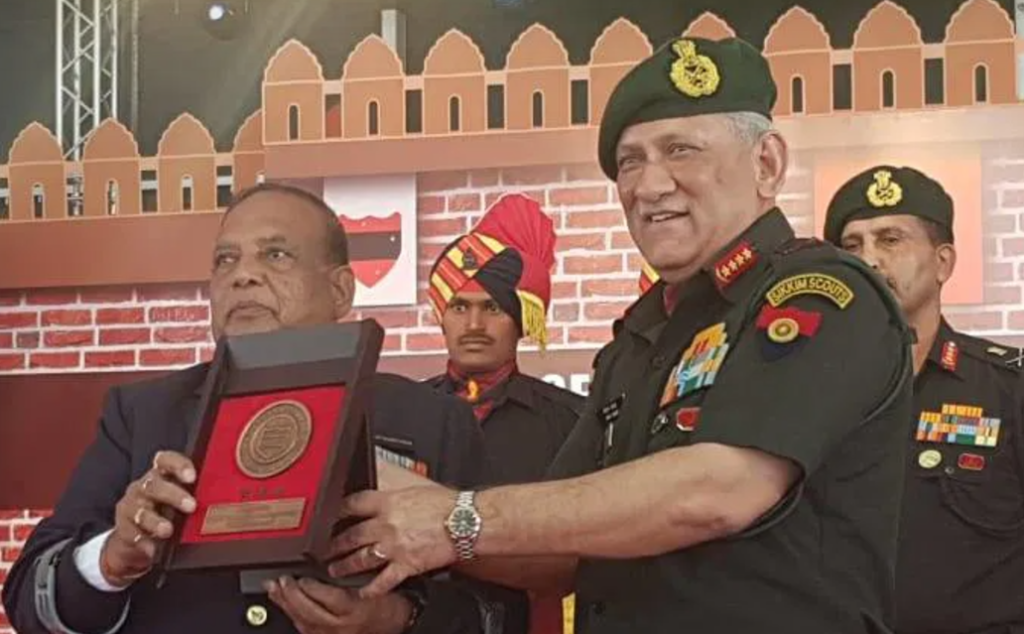 source: https://murlikantpetkar.com/भारतीय सेना में मुरलीकांत पेटकर का करियर वह आधार था जिसने उनके चरित्र, अनुशासन और शारीरिक फिटनेस को आकार दिया – ऐसे गुण जो बाद में पैरा-एथलीट के रूप में उनकी सफलता में महत्वपूर्ण साबित हुए। वह 19 साल की उम्र में भारतीय सेना में शामिल हो गए, अपने देश की सेवा करने और बहादुरी और लचीलेपन के सैन्य आदर्शों पर खरा उतरने के लिए उत्सुक थे। शुरुआत में, पेटकर ने अपने प्रशिक्षण में खूब तरक्की की, विभिन्न शारीरिक गतिविधियों में उत्कृष्ट प्रदर्शन किया, जिसने एक होनहार युवा सैनिक के रूप में उनकी प्रतिष्ठा बनाई।सेना में उनके कार्यकाल ने उन्हें अपनी एथलेटिक क्षमताओं को निखारने का मौका दिया, जिससे यह उनके शुरुआती करियर के लिए एक आदर्श माहौल बन गया। सैन्य जीवनशैली, जिसमें ताकत, धीरज और अनुशासन पर ध्यान केंद्रित किया जाता था, पेटकर के लिए बिल्कुल उपयुक्त थी। लेकिन 1965 में एक प्रशिक्षण सत्र के दौरान उनके जीवन की दिशा हमेशा के लिए बदल गई। एक प्रशिक्षण दुर्घटना से जुड़ी एक दुखद घटना के परिणामस्वरूप पेटकर को गोली लग गई, जिससे उनका बायाँ हाथ कट गया।इस भयानक चोट ने उन्हें सेना छोड़ने और अपने जीवन का पुनर्मूल्यांकन करने के लिए मजबूर कर दिया। शारीरिक दर्द तो बहुत तीव्र था, लेकिन विकलांगता के साथ जीवन को समायोजित करने की भावनात्मक और मनोवैज्ञानिक चुनौती सबसे कठिन साबित हुई। हालांकि, पेटकर की अदम्य भावना कभी डगमगाई नहीं। उन्होंने अपने हाथ के नुकसान को अंत के रूप में नहीं देखा, बल्कि इसे फिर से आविष्कार करने के अवसर के रूप में देखा। विपरीत परिस्थितियों का सामना करते हुए, उन्होंने अपनी ऊर्जा को पुनर्वास में लगाने का फैसला किया, न केवल जीने के तरीके बल्कि अपनी नई परिस्थितियों में पनपने के तरीके भी तलाशे।विकलांगता के साथ जीवन को अपनाने की चुनौतियों के बावजूद, पेटकर शारीरिक फिटनेस के लिए प्रतिबद्ध रहे। उन्होंने अपनी ताकत और सहनशक्ति को वापस पाने के लिए विभिन्न प्रकार के व्यायाम और खेलों के साथ प्रयोग करना शुरू किया। इसी दौरान उन्हें पैरा-स्पोर्ट्स से परिचित कराया गया, एक ऐसा क्षेत्र जिसने उन्हें एक नया उद्देश्य दिया। एक सैनिक से पैरा-एथलीट बनने का उनका परिवर्तन धीरे-धीरे हुआ, जो दृढ़ता और दृढ़ संकल्प से चिह्नित था। सेना में उन्होंने जो अनुशासन सीखा था, उसने उन्हें अपने नए जीवन को अपनाने में महत्वपूर्ण भूमिका निभाई और अंततः पैरा-स्पोर्ट्स की दुनिया में उनकी सफलता का कारण बना।पैरा-स्पोर्ट्स में यात्रा
source: https://murlikantpetkar.com/भारतीय सेना में मुरलीकांत पेटकर का करियर वह आधार था जिसने उनके चरित्र, अनुशासन और शारीरिक फिटनेस को आकार दिया – ऐसे गुण जो बाद में पैरा-एथलीट के रूप में उनकी सफलता में महत्वपूर्ण साबित हुए। वह 19 साल की उम्र में भारतीय सेना में शामिल हो गए, अपने देश की सेवा करने और बहादुरी और लचीलेपन के सैन्य आदर्शों पर खरा उतरने के लिए उत्सुक थे। शुरुआत में, पेटकर ने अपने प्रशिक्षण में खूब तरक्की की, विभिन्न शारीरिक गतिविधियों में उत्कृष्ट प्रदर्शन किया, जिसने एक होनहार युवा सैनिक के रूप में उनकी प्रतिष्ठा बनाई।सेना में उनके कार्यकाल ने उन्हें अपनी एथलेटिक क्षमताओं को निखारने का मौका दिया, जिससे यह उनके शुरुआती करियर के लिए एक आदर्श माहौल बन गया। सैन्य जीवनशैली, जिसमें ताकत, धीरज और अनुशासन पर ध्यान केंद्रित किया जाता था, पेटकर के लिए बिल्कुल उपयुक्त थी। लेकिन 1965 में एक प्रशिक्षण सत्र के दौरान उनके जीवन की दिशा हमेशा के लिए बदल गई। एक प्रशिक्षण दुर्घटना से जुड़ी एक दुखद घटना के परिणामस्वरूप पेटकर को गोली लग गई, जिससे उनका बायाँ हाथ कट गया।इस भयानक चोट ने उन्हें सेना छोड़ने और अपने जीवन का पुनर्मूल्यांकन करने के लिए मजबूर कर दिया। शारीरिक दर्द तो बहुत तीव्र था, लेकिन विकलांगता के साथ जीवन को समायोजित करने की भावनात्मक और मनोवैज्ञानिक चुनौती सबसे कठिन साबित हुई। हालांकि, पेटकर की अदम्य भावना कभी डगमगाई नहीं। उन्होंने अपने हाथ के नुकसान को अंत के रूप में नहीं देखा, बल्कि इसे फिर से आविष्कार करने के अवसर के रूप में देखा। विपरीत परिस्थितियों का सामना करते हुए, उन्होंने अपनी ऊर्जा को पुनर्वास में लगाने का फैसला किया, न केवल जीने के तरीके बल्कि अपनी नई परिस्थितियों में पनपने के तरीके भी तलाशे।विकलांगता के साथ जीवन को अपनाने की चुनौतियों के बावजूद, पेटकर शारीरिक फिटनेस के लिए प्रतिबद्ध रहे। उन्होंने अपनी ताकत और सहनशक्ति को वापस पाने के लिए विभिन्न प्रकार के व्यायाम और खेलों के साथ प्रयोग करना शुरू किया। इसी दौरान उन्हें पैरा-स्पोर्ट्स से परिचित कराया गया, एक ऐसा क्षेत्र जिसने उन्हें एक नया उद्देश्य दिया। एक सैनिक से पैरा-एथलीट बनने का उनका परिवर्तन धीरे-धीरे हुआ, जो दृढ़ता और दृढ़ संकल्प से चिह्नित था। सेना में उन्होंने जो अनुशासन सीखा था, उसने उन्हें अपने नए जीवन को अपनाने में महत्वपूर्ण भूमिका निभाई और अंततः पैरा-स्पोर्ट्स की दुनिया में उनकी सफलता का कारण बना।पैरा-स्पोर्ट्स में यात्रा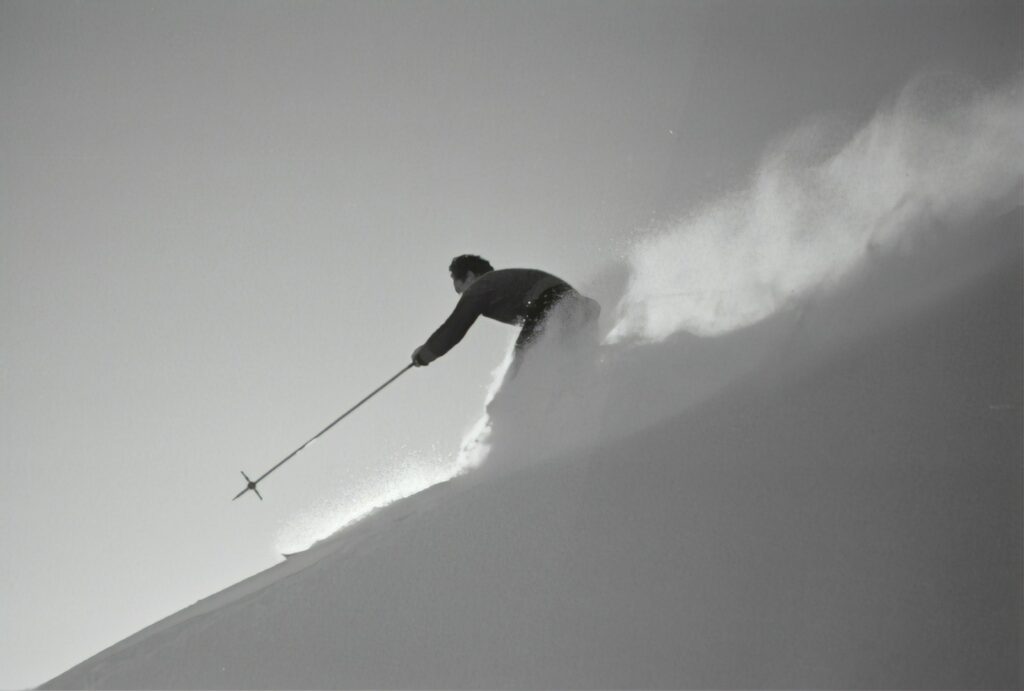 मुरलीकांत पेटकर की पैरा-स्पोर्ट्स में यात्रा दुखद दुर्घटना के बाद शुरू हुई, जिसने उन्हें स्थायी विकलांगता के साथ छोड़ दिया। चोट के बाद की शुरुआती अवधि शारीरिक और भावनात्मक संघर्षों से भरी थी, क्योंकि उन्होंने अपनी नई वास्तविकता को समायोजित किया। हालाँकि, उनके लचीलेपन और दृढ़ संकल्प ने जल्द ही उन्हें खेलों की ओर धकेल दिया, एक ऐसा क्षेत्र जहाँ वे अपना आत्मविश्वास वापस पा सकते थे और अपनी शारीरिक क्षमताओं को नए तरीकों से परख सकते थे। पुनर्वास में कई महीने बिताने के बाद, पेटकर को कुछ दयालु व्यक्तियों द्वारा पैरा-स्पोर्ट्स की दुनिया से परिचित कराया गया, जिन्होंने उनकी क्षमता को पहचाना। उन्होंने विकलांग लोगों के लिए स्थानीय प्रतियोगिताओं में भाग लेना शुरू कर दिया, जहाँ उन्होंने एथलेटिकवाद के लिए अपने प्यार को फिर से खोजना शुरू किया। हालाँकि शुरू में अनिश्चित, पेटकर की प्राकृतिक एथलेटिक क्षमताएँ प्रशिक्षण के साथ-साथ अपनी नई परिस्थितियों के अनुकूल ढलने लगीं। तैराकी में ही उन्हें एक नया जुनून मिला। पानी, जिसे उन्होंने कभी एक मनोरंजक गतिविधि के रूप में अनुभव किया था, जल्द ही एक ऐसी जगह बन गया जहाँ वे खुद को चुनौती दे सकते थे। उनके सैन्य प्रशिक्षण के माध्यम से उनके अनुशासन ने उन्हें प्रतिस्पर्धी तैराकी की माँगों के अनुकूल ढलने में मदद की। पेटकर ने लगातार प्रशिक्षण लिया, कभी-कभी बिना उचित सुविधाओं या समर्थन के, लेकिन उनका धैर्य और दृढ़ संकल्प कभी कम नहीं हुआ। बहुत जल्द ही उनकी प्रतिभा को बड़े पैमाने पर पहचाना जाने लगा, जिससे अंततः उन्हें अंतर्राष्ट्रीय मंच पर जगह मिली। पैरा-स्पोर्ट्स में उनका संक्रमण आत्म-खोज की यात्रा थी, जहाँ पेटकर ने न केवल अपनी शारीरिक शक्ति का पुनर्निर्माण किया, बल्कि पैरा-एथलीट होने के साथ आने वाली अनूठी चुनौतियों को स्वीकार करना भी सीखा।पैरा-स्विमिंग में उपलब्धियाँ
मुरलीकांत पेटकर की पैरा-स्पोर्ट्स में यात्रा दुखद दुर्घटना के बाद शुरू हुई, जिसने उन्हें स्थायी विकलांगता के साथ छोड़ दिया। चोट के बाद की शुरुआती अवधि शारीरिक और भावनात्मक संघर्षों से भरी थी, क्योंकि उन्होंने अपनी नई वास्तविकता को समायोजित किया। हालाँकि, उनके लचीलेपन और दृढ़ संकल्प ने जल्द ही उन्हें खेलों की ओर धकेल दिया, एक ऐसा क्षेत्र जहाँ वे अपना आत्मविश्वास वापस पा सकते थे और अपनी शारीरिक क्षमताओं को नए तरीकों से परख सकते थे। पुनर्वास में कई महीने बिताने के बाद, पेटकर को कुछ दयालु व्यक्तियों द्वारा पैरा-स्पोर्ट्स की दुनिया से परिचित कराया गया, जिन्होंने उनकी क्षमता को पहचाना। उन्होंने विकलांग लोगों के लिए स्थानीय प्रतियोगिताओं में भाग लेना शुरू कर दिया, जहाँ उन्होंने एथलेटिकवाद के लिए अपने प्यार को फिर से खोजना शुरू किया। हालाँकि शुरू में अनिश्चित, पेटकर की प्राकृतिक एथलेटिक क्षमताएँ प्रशिक्षण के साथ-साथ अपनी नई परिस्थितियों के अनुकूल ढलने लगीं। तैराकी में ही उन्हें एक नया जुनून मिला। पानी, जिसे उन्होंने कभी एक मनोरंजक गतिविधि के रूप में अनुभव किया था, जल्द ही एक ऐसी जगह बन गया जहाँ वे खुद को चुनौती दे सकते थे। उनके सैन्य प्रशिक्षण के माध्यम से उनके अनुशासन ने उन्हें प्रतिस्पर्धी तैराकी की माँगों के अनुकूल ढलने में मदद की। पेटकर ने लगातार प्रशिक्षण लिया, कभी-कभी बिना उचित सुविधाओं या समर्थन के, लेकिन उनका धैर्य और दृढ़ संकल्प कभी कम नहीं हुआ। बहुत जल्द ही उनकी प्रतिभा को बड़े पैमाने पर पहचाना जाने लगा, जिससे अंततः उन्हें अंतर्राष्ट्रीय मंच पर जगह मिली। पैरा-स्पोर्ट्स में उनका संक्रमण आत्म-खोज की यात्रा थी, जहाँ पेटकर ने न केवल अपनी शारीरिक शक्ति का पुनर्निर्माण किया, बल्कि पैरा-एथलीट होने के साथ आने वाली अनूठी चुनौतियों को स्वीकार करना भी सीखा।पैरा-स्विमिंग में उपलब्धियाँ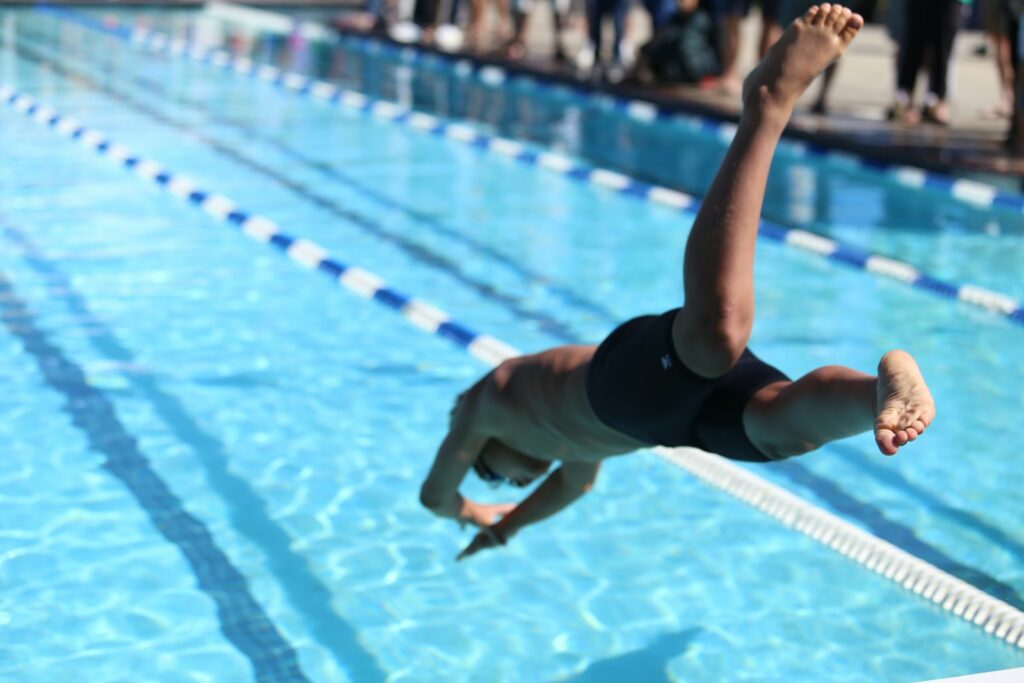 मुरलीकांत पेटकर की सबसे बड़ी उपलब्धि 1972 के हीडलबर्ग पैरालंपिक खेलों में मिली, जहाँ वे भारत के पहले पैरालंपिक स्वर्ण पदक विजेता बने। यह जीत सिर्फ़ पेटकर के लिए ही नहीं बल्कि पूरे देश के लिए अभूतपूर्व थी, क्योंकि इसने भारत में पैरा-स्पोर्ट्स को पहचान दिलाई। 50 मीटर फ़्रीस्टाइल इवेंट में पेटकर की जीत एक ऐतिहासिक क्षण था जिसने उनकी विरासत को परिभाषित किया।पेटकर का स्वर्ण पदक प्रदर्शन किसी शानदार प्रदर्शन से कम नहीं था। दुनिया भर के कुछ बेहतरीन एथलीटों के साथ प्रतिस्पर्धा करते हुए, उन्होंने इस इवेंट में सिर्फ़ 37.33 सेकंड में दौड़ पूरी करके विश्व रिकॉर्ड बनाया। उस समय, यह न केवल देश के लिए बल्कि पैरा-एथलीटों के बड़े वैश्विक समुदाय के लिए भी एक बड़ी उपलब्धि थी। तैराकी में पेटकर की सफलता ने साबित कर दिया कि शारीरिक सीमाएँ किसी को भी महानता हासिल करने से नहीं रोक सकतीं। इसने दुनिया को दिखाया कि पर्याप्त दृढ़ संकल्प, कड़ी मेहनत और ध्यान के साथ, विकलांग एथलीट वैश्विक मंच पर उत्कृष्ट प्रदर्शन कर सकते हैं।यह जीत इसलिए महत्वपूर्ण थी क्योंकि यह सामाजिक बाधाओं को तोड़ने का प्रतीक थी। ऐसे दौर में जब पैरा-स्पोर्ट्स को व्यापक मान्यता नहीं मिली थी, पेटकर की उपलब्धि ने भारत को अंतरराष्ट्रीय पैरा-स्पोर्ट्स समुदाय के मानचित्र पर ला खड़ा किया। उनके पदक ने भारत सरकार और जनता को विकलांग एथलीटों की क्षमता के बारे में एक मजबूत संदेश भी दिया, जिससे देश में पैरा-एथलीटों के लिए अधिक रुचि और समर्थन पैदा हुआ।स्वर्ण पदक से परे, 1972 के पैरालिंपिक में पेटकर के प्रदर्शन ने भारत में पैरा-एथलीटों की भावी पीढ़ियों के लिए आधार तैयार करने में मदद की। उनकी उपलब्धि एक प्रेरणा बनी हुई है, एक अनुस्मारक है कि परिस्थितियाँ चाहे कैसी भी हों, उत्कृष्टता प्राप्त की जा सकती है।अन्य खेलों में योगदानजबकि पेटकर तैराकी में अपनी उपलब्धियों के लिए सबसे ज्यादा जाने जाते हैं, अन्य खेलों, विशेष रूप से भाला और टेबल टेनिस में उनके योगदान ने एक एथलीट के रूप में उनकी बहुमुखी प्रतिभा को और भी अधिक दर्शाया है। तैराकी में अपनी सफलता के बाद, प्रतिस्पर्धा और उत्कृष्टता के लिए पेटकर की भूख ने उन्हें अन्य पैरा-स्पोर्ट्स की खोज करने के लिए प्रेरित किया, जहाँ उन्होंने एक महत्वपूर्ण प्रभाव भी डाला।भाला फेंक में, पेटकर ने राष्ट्रीय स्तर की प्रतियोगिताओं में भाग लिया, जिससे एक बहुमुखी एथलीट के रूप में उनकी प्रतिष्ठा और मजबूत हुई। हालाँकि तैराकी उनका प्राथमिक लक्ष्य रहा, लेकिन वे एथलेटिक्स के क्षेत्र में और अधिक प्रशंसा पाने में सफल रहे। भाला फेंक में उनकी उपलब्धियों ने अन्य पैरा-एथलीटों के लिए नए अवसर खोले, जिससे यह साबित हुआ कि कोई व्यक्ति एक से अधिक खेलों में उत्कृष्टता प्राप्त कर सकता है। एथलेटिक्स और अन्य खेलों में उनकी भागीदारी ने पैरा-एथलीटों के लिए दायरे को व्यापक बनाने के महत्व के बारे में जागरूकता पैदा करने में मदद की और विभिन्न क्षेत्रों में प्रतिभा खोज के लिए एक व्यापक मंच प्रदान किया।इसके अतिरिक्त, पेटकर ने टेबल टेनिस में सक्रिय रुचि ली, जहाँ उन्होंने फिर से सटीकता और ध्यान की आवश्यकता वाले खेल में अच्छा प्रदर्शन करने की अपनी क्षमता का प्रदर्शन किया। कई खेलों में भाग लेकर, उन्होंने पैरा-एथलीटों की विभिन्न विषयों में चमकने की क्षमता का प्रदर्शन किया, जिससे उनकी क्षमताओं के बारे में पूर्वाग्रहों को चुनौती मिली।इन खेलों में पेटकर के योगदान ने कई विषयों में एथलीटों को प्रशिक्षित करने और विकसित करने के महत्व पर ध्यान आकर्षित करने में मदद की। उनकी बहु-खेल भागीदारी ने इस विचार को पुष्ट किया कि पैरा-खेलों में सफलता एक इवेंट या श्रेणी तक सीमित नहीं है और विकलांग एथलीटों में कई गतिविधियों में उत्कृष्टता प्राप्त करने की क्षमता है। विभिन्न खेलों में उत्कृष्टता की उनकी खोज एथलीटों को विभिन्न प्रतिभाओं को आगे बढ़ाने और विभिन्न क्षेत्रों में बाधाओं को तोड़ने के लिए प्रेरित करती रहती है।मान्यता और सम्मान
मुरलीकांत पेटकर की सबसे बड़ी उपलब्धि 1972 के हीडलबर्ग पैरालंपिक खेलों में मिली, जहाँ वे भारत के पहले पैरालंपिक स्वर्ण पदक विजेता बने। यह जीत सिर्फ़ पेटकर के लिए ही नहीं बल्कि पूरे देश के लिए अभूतपूर्व थी, क्योंकि इसने भारत में पैरा-स्पोर्ट्स को पहचान दिलाई। 50 मीटर फ़्रीस्टाइल इवेंट में पेटकर की जीत एक ऐतिहासिक क्षण था जिसने उनकी विरासत को परिभाषित किया।पेटकर का स्वर्ण पदक प्रदर्शन किसी शानदार प्रदर्शन से कम नहीं था। दुनिया भर के कुछ बेहतरीन एथलीटों के साथ प्रतिस्पर्धा करते हुए, उन्होंने इस इवेंट में सिर्फ़ 37.33 सेकंड में दौड़ पूरी करके विश्व रिकॉर्ड बनाया। उस समय, यह न केवल देश के लिए बल्कि पैरा-एथलीटों के बड़े वैश्विक समुदाय के लिए भी एक बड़ी उपलब्धि थी। तैराकी में पेटकर की सफलता ने साबित कर दिया कि शारीरिक सीमाएँ किसी को भी महानता हासिल करने से नहीं रोक सकतीं। इसने दुनिया को दिखाया कि पर्याप्त दृढ़ संकल्प, कड़ी मेहनत और ध्यान के साथ, विकलांग एथलीट वैश्विक मंच पर उत्कृष्ट प्रदर्शन कर सकते हैं।यह जीत इसलिए महत्वपूर्ण थी क्योंकि यह सामाजिक बाधाओं को तोड़ने का प्रतीक थी। ऐसे दौर में जब पैरा-स्पोर्ट्स को व्यापक मान्यता नहीं मिली थी, पेटकर की उपलब्धि ने भारत को अंतरराष्ट्रीय पैरा-स्पोर्ट्स समुदाय के मानचित्र पर ला खड़ा किया। उनके पदक ने भारत सरकार और जनता को विकलांग एथलीटों की क्षमता के बारे में एक मजबूत संदेश भी दिया, जिससे देश में पैरा-एथलीटों के लिए अधिक रुचि और समर्थन पैदा हुआ।स्वर्ण पदक से परे, 1972 के पैरालिंपिक में पेटकर के प्रदर्शन ने भारत में पैरा-एथलीटों की भावी पीढ़ियों के लिए आधार तैयार करने में मदद की। उनकी उपलब्धि एक प्रेरणा बनी हुई है, एक अनुस्मारक है कि परिस्थितियाँ चाहे कैसी भी हों, उत्कृष्टता प्राप्त की जा सकती है।अन्य खेलों में योगदानजबकि पेटकर तैराकी में अपनी उपलब्धियों के लिए सबसे ज्यादा जाने जाते हैं, अन्य खेलों, विशेष रूप से भाला और टेबल टेनिस में उनके योगदान ने एक एथलीट के रूप में उनकी बहुमुखी प्रतिभा को और भी अधिक दर्शाया है। तैराकी में अपनी सफलता के बाद, प्रतिस्पर्धा और उत्कृष्टता के लिए पेटकर की भूख ने उन्हें अन्य पैरा-स्पोर्ट्स की खोज करने के लिए प्रेरित किया, जहाँ उन्होंने एक महत्वपूर्ण प्रभाव भी डाला।भाला फेंक में, पेटकर ने राष्ट्रीय स्तर की प्रतियोगिताओं में भाग लिया, जिससे एक बहुमुखी एथलीट के रूप में उनकी प्रतिष्ठा और मजबूत हुई। हालाँकि तैराकी उनका प्राथमिक लक्ष्य रहा, लेकिन वे एथलेटिक्स के क्षेत्र में और अधिक प्रशंसा पाने में सफल रहे। भाला फेंक में उनकी उपलब्धियों ने अन्य पैरा-एथलीटों के लिए नए अवसर खोले, जिससे यह साबित हुआ कि कोई व्यक्ति एक से अधिक खेलों में उत्कृष्टता प्राप्त कर सकता है। एथलेटिक्स और अन्य खेलों में उनकी भागीदारी ने पैरा-एथलीटों के लिए दायरे को व्यापक बनाने के महत्व के बारे में जागरूकता पैदा करने में मदद की और विभिन्न क्षेत्रों में प्रतिभा खोज के लिए एक व्यापक मंच प्रदान किया।इसके अतिरिक्त, पेटकर ने टेबल टेनिस में सक्रिय रुचि ली, जहाँ उन्होंने फिर से सटीकता और ध्यान की आवश्यकता वाले खेल में अच्छा प्रदर्शन करने की अपनी क्षमता का प्रदर्शन किया। कई खेलों में भाग लेकर, उन्होंने पैरा-एथलीटों की विभिन्न विषयों में चमकने की क्षमता का प्रदर्शन किया, जिससे उनकी क्षमताओं के बारे में पूर्वाग्रहों को चुनौती मिली।इन खेलों में पेटकर के योगदान ने कई विषयों में एथलीटों को प्रशिक्षित करने और विकसित करने के महत्व पर ध्यान आकर्षित करने में मदद की। उनकी बहु-खेल भागीदारी ने इस विचार को पुष्ट किया कि पैरा-खेलों में सफलता एक इवेंट या श्रेणी तक सीमित नहीं है और विकलांग एथलीटों में कई गतिविधियों में उत्कृष्टता प्राप्त करने की क्षमता है। विभिन्न खेलों में उत्कृष्टता की उनकी खोज एथलीटों को विभिन्न प्रतिभाओं को आगे बढ़ाने और विभिन्न क्षेत्रों में बाधाओं को तोड़ने के लिए प्रेरित करती रहती है।मान्यता और सम्मान मुरलीकांत पेटकर की उपलब्धियाँ किसी की नज़र से नहीं छूटीं। पिछले कुछ वर्षों में, उन्हें खेलों में उनके योगदान और पैरा-स्पोर्ट्स की दुनिया में अग्रणी होने के लिए कई सम्मान और पुरस्कार मिले। सबसे प्रतिष्ठित पुरस्कारों में से एक पद्म श्री था, जो भारत के सर्वोच्च नागरिक पुरस्कारों में से एक है, जिसे उन्हें पैरा-स्पोर्ट्स में उनकी उल्लेखनीय उपलब्धियों के लिए 2012 में प्रदान किया गया था। यह सम्मान एक एथलीट के रूप में पेटकर की विरासत का प्रमाण था, जिन्होंने न केवल अपने देश को गौरव दिलाया, बल्कि पैरा-एथलीटों की भावी पीढ़ियों के लिए मार्ग भी प्रशस्त किया। पद्म श्री के अलावा, पेटकर को अपने पूरे जीवन में कई अन्य सम्मान मिले।1972 के पैरालिंपिक में उनकी सफलता ने उन्हें वैश्विक पहचान दिलाई और उनकी कहानी को अंतरराष्ट्रीय मंचों पर मनाया गया। उन्हें विभिन्न कार्यक्रमों और सेमिनारों में आमंत्रित किया गया, जहाँ उन्होंने अपनी प्रेरक यात्रा साझा की, दूसरों को चुनौतियों से पार पाने और अपने सपनों को पूरा करने के लिए प्रेरित किया। इसके अलावा, पेटकर के प्रयास उनकी व्यक्तिगत उपलब्धियों से कहीं आगे निकल गए। वे विकलांग एथलीटों के अधिकारों के लिए एक वकील बन गए, उन्होंने अपने मंच का उपयोग भारत में पैरा-स्पोर्ट्स के लिए अधिक समर्थन और संसाधनों के लिए किया। उनकी वकालत ने पैरा-एथलीटों को मुख्यधारा के खेल आयोजनों में शामिल करने के महत्व के बारे में जागरूकता बढ़ाने में मदद की, सरकार और निजी संगठनों को विकलांग एथलीटों के लिए बेहतर बुनियादी ढांचे और प्रशिक्षण सुविधाओं में निवेश करने के लिए प्रोत्साहित किया।पेटकर को उनके जीवन भर मिली मान्यता और सम्मान ने न केवल एक पैरा-एथलीट के रूप में उनकी सफलता को उजागर किया, बल्कि भारतीय खेलों के परिदृश्य को बदलने में उनकी भूमिका को भी उजागर किया, विशेष रूप से विकलांग एथलीटों के लिए। उनकी विरासत उन्हें मिले पुरस्कारों और उनके द्वारा प्रेरित किए जाने वाले जीवन में जीवित है।भारत में पैरा-एथलीट के रूप में चुनौतियाँएक पैरा-एथलीट के रूप में मुरलीकांत पेटकर की उल्लेखनीय यात्रा अपनी महत्वपूर्ण चुनौतियों के बिना नहीं थी। वैश्विक मंच पर उनकी अभूतपूर्व उपलब्धियों के बावजूद, उनका मार्ग बाधाओं से भरा था, जिसका मुख्य कारण 1960 और 1970 के दशक के दौरान भारत में विकलांग एथलीटों के लिए मौजूद सामाजिक और बुनियादी ढाँचागत सीमाएँ थीं।पेटकर के सामने सबसे बड़ी समस्या पैरा-एथलीटों के लिए उचित सुविधाओं और प्रशिक्षण संसाधनों की कमी थी। उन शुरुआती दिनों में, विकलांग एथलीटों के लिए सुसज्जित सुलभ स्विमिंग पूल या खेल के मैदान दुर्लभ थे, और कई विकलांग एथलीटों को उप-इष्टतम परिस्थितियों में प्रशिक्षण लेना पड़ता था। पेटकर के लिए, तैराकी का अभ्यास करने के लिए उपयुक्त स्थान ढूँढ़ना एक संघर्ष था। उन्हें अक्सर सीमित संसाधनों, अस्थायी परिस्थितियों में प्रशिक्षण और सफल होने के लिए अपने दृढ़ संकल्प पर निर्भर रहना पड़ता था। विकलांग एथलीटों के लिए विशेष कोचों की कमी एक और बाधा थी जिसे उन्हें पार करना था। पेटकर को अपने कौशल को निखारने के लिए काफी हद तक अपनी पहल पर निर्भर रहना पड़ा, और कई बार उन्हें परीक्षण और त्रुटि से सीखना पड़ा।एक और महत्वपूर्ण चुनौती विकलांगता के प्रति सामाजिक दृष्टिकोण थी। भारत में, विकलांग व्यक्तियों की धारणा अक्सर रूढ़िवादिता में निहित थी जो सामाजिक और पेशेवर समावेशन में बाधा डालती थी। पेटकर सहित पैरा-एथलीटों को मुख्यधारा के खेलों में “वास्तविक” प्रतियोगियों के रूप में नहीं देखा जाता था। उनकी उपलब्धियों को अक्सर खारिज कर दिया जाता था, और उन्हें प्रायोजन, मान्यता और समर्थन के मामले में हाशिए पर रखा जाता था। संस्थागत समर्थन की कमी ने पेटकर और अन्य विकलांग एथलीटों के लिए आगे बढ़ना और भी मुश्किल बना दिया। इन व्यवस्थागत बाधाओं के बावजूद, पेटकर अपने लक्ष्य पर केंद्रित रहे और यह साबित करने के लिए अथक प्रयास किया कि विकलांग एथलीट उच्चतम स्तर पर प्रदर्शन कर सकते हैं।भारत में विकलांग एथलीटों के लिए वित्तीय सहायता भी बहुत कम थी, खासकर 1970 के दशक में। पेटकर को अपनी यात्रा और उपकरणों की लागत खुद ही उठानी पड़ती थी और कई बार उन्हें अपने सफ़र का समर्थन करने के लिए प्रायोजक खोजने में भी संघर्ष करना पड़ता था। फिर भी, इन सभी असफलताओं के बावजूद, पेटकर की अटूट भावना और अपने खेल के प्रति समर्पण ने उन्हें आगे बढ़ने के लिए प्रेरित किया। इन भारी चुनौतियों के बावजूद उनकी सफलता उनके असाधारण लचीलेपन और दृढ़ संकल्प का प्रमाण थी जिसने उनके करियर को परिभाषित किया।विरासत और प्रभावमुरलीकांत पेटकर की विरासत न केवल पैरा-स्पोर्ट्स में उनकी उपलब्धियों से परिभाषित होती है, बल्कि भारत में विकलांग एथलीटों के भविष्य पर उनके गहन प्रभाव से भी परिभाषित होती है। 1972 के पैरालिंपिक में उनका ऐतिहासिक स्वर्ण पदक भारतीय खेलों के इतिहास में एक महत्वपूर्ण क्षण था, न केवल इसकी दुर्लभता के कारण बल्कि इसलिए भी कि इसने एक स्पष्ट संदेश दिया: विकलांग एथलीट खेल उपलब्धि के उच्चतम सोपानों तक पहुँचने में सक्षम हैं।पेटकर की जीत ने गहरे सामाजिक मानदंडों को चुनौती दी और कई विकलांग व्यक्तियों के लिए दरवाजे खोले, जिन्हें लंबे समय से खेलों में अवसरों से वंचित रखा गया था। उनकी सफलता ने भारत में विकलांग एथलीटों को सशक्त बनाने पर केंद्रित एक बढ़ते आंदोलन को जन्म दिया, जिसके परिणामस्वरूप पैरा-स्पोर्ट्स को अधिक मान्यता और समर्थन मिला। पेटकर ने एथलीटों की एक नई पीढ़ी को शारीरिक सीमाओं के बावजूद अपने सपनों को पूरा करने के लिए प्रेरित किया। उनकी कहानी आशा की किरण बन गई, जिसने दिखाया कि सही मानसिकता, दृढ़ता और दृढ़ संकल्प के साथ, किसी की परिस्थितियों की परवाह किए बिना कुछ भी संभव है।इसके अलावा, पेटकर का प्रभाव खेल की दुनिया से परे भी फैला। पैरा-एथलीटों के लिए अधिक समावेशन और संसाधनों के लिए उनकी वकालत ने विकलांग खिलाड़ियों के लिए बेहतर बुनियादी ढांचे, प्रशिक्षण सुविधाओं और सरकारी सहायता की आवश्यकता के बारे में जागरूकता बढ़ाने में योगदान दिया। उन्होंने सुलभता के बारे में बातचीत शुरू करने में महत्वपूर्ण भूमिका निभाई, जिसके कारण भारत में पैरा-स्पोर्ट्स के लिए नीतियों और फंडिंग में कुछ सकारात्मक बदलाव हुए। उनकी विरासत राष्ट्रीय और अंतर्राष्ट्रीय मंचों पर पैरा-एथलीटों की अधिक दृश्यता में भी परिलक्षित होती है, और उनका उदाहरण भारत में विकलांग एथलीटों की बढ़ती मान्यता के पीछे एक प्रेरक शक्ति है।पेटकर का प्रभाव मुख्यधारा के समाज तक भी फैला, जहाँ उन्होंने विकलांगता से जुड़े कलंक को तोड़ने में मदद की। उनकी कहानी ने लोगों को इस बात पर पुनर्विचार करने के लिए प्रोत्साहित किया कि विकलांग व्यक्ति क्या हासिल कर सकते हैं और उन्हें खेल सहित जीवन के विभिन्न क्षेत्रों में भाग लेने के लिए समान अवसर देने के महत्व पर प्रकाश डाला। आज, पेटकर इतिहास की किताबों में सिर्फ एक नाम नहीं हैं; वे साहस, प्रेरणा और खेल की परिवर्तनकारी शक्ति का प्रतीक हैं।लोकप्रिय संस्कृति में मुरलीकांत पेटकरहालाँकि मुरलीकांत पेटकर की उपलब्धियों को मुख्य रूप से खेल जगत में पहचाना जाता था, लेकिन उनका प्रभाव एथलेटिक समुदाय से परे, लोकप्रिय संस्कृति तक फैला हुआ था। उनके जीवन और उपलब्धियों को विभिन्न मीडिया प्रस्तुतियों का विषय बनाया गया है, जिसमें वृत्तचित्र, पुस्तकें और साक्षात्कार शामिल हैं, जो सेना के एक सैनिक से पैरालंपिक स्वर्ण पदक विजेता तक के उनके प्रेरक सफर को उजागर करते हैं। इन चित्रणों ने भारत और विश्व स्तर पर पैरा-स्पोर्ट्स के बारे में जागरूकता बढ़ाने में मदद की है, जिससे अनगिनत व्यक्तियों को प्रतिकूल परिस्थितियों के बावजूद अपने जुनून को आगे बढ़ाने की प्रेरणा मिली है।पेटकर की कहानी को व्यापक दर्शकों के साथ साझा करने का सबसे महत्वपूर्ण तरीका वृत्तचित्रों और साक्षात्कारों के माध्यम से है। उनके प्रेरक सफर को कई खेल-संबंधी वृत्तचित्रों में दिखाया गया है, जहाँ 1972 के पैरालंपिक खेलों में उनकी जीत को भारत के सबसे महान खेल क्षणों में से एक के रूप में दिखाया गया है। ये वृत्तचित्र अक्सर न केवल पूल में पेटकर की उल्लेखनीय उपलब्धि पर बल्कि मानसिक शक्ति और दृढ़ संकल्प पर भी ध्यान केंद्रित करते हैं, जिसने उन्हें महत्वपूर्ण शारीरिक और सामाजिक बाधाओं को दूर करने में सक्षम बनाया।उनकी कहानी को लिखित शब्दों के माध्यम से भी बताया गया है। पेटकर की जीवनी और उनके जीवन के बारे में विभिन्न लेखों ने उनके संघर्षों, उपलब्धियों और पैरा-एथलीटों के सामने आने वाले व्यापक मुद्दों पर प्रकाश डालकर पाठकों को प्रेरित किया है। ये लिखित विवरण विकलांग और सक्षम दोनों व्यक्तियों के लिए प्रेरणा के स्रोत के रूप में काम करते हैं, जो दृढ़ता और चुनौतीपूर्ण सीमाओं के महत्व के बारे में महत्वपूर्ण सबक सिखाते हैं।मीडिया चित्रण के अलावा, पेटकर के जीवन को स्कूलों, खेल क्लबों और प्रेरक सेमिनारों में मनाया गया है, जहाँ वे युवा पीढ़ी के लिए एक प्रभावशाली व्यक्ति बने हुए हैं। पैरा-एथलीटों के साथ काम करने वाले कोच और मेंटर अक्सर उनकी विरासत का हवाला देते हैं, जो बाधाओं के बावजूद खुद पर विश्वास करने के महत्व पर जोर देते हैं। इन प्रयासों के माध्यम से, पेटकर की कहानी लाखों लोगों को प्रेरित करती है, जो प्रतिकूल परिस्थितियों का सामना करने में उपलब्धि और लचीलेपन का एक स्थायी प्रतीक बन गई है।वर्तमान स्थिति और व्यक्तिगत जीवनप्रतिस्पर्धी खेलों से संन्यास लेने के बाद, मुरलीकांत पेटकर ने विकलांग व्यक्तियों के कल्याण और भारत में पैरा-स्पोर्ट्स की उन्नति के लिए समर्पित एक पूर्ण जीवन जीना जारी रखा। हालाँकि वे प्रतिस्पर्धी क्षेत्र से दूर चले गए, लेकिन विकलांग एथलीटों के वकील के रूप में अपने काम के माध्यम से खेल समुदाय में पेटकर का प्रभाव मजबूत बना रहा।अपने खेल के बाद के करियर में, पेटकर ने विकलांग एथलीटों को मुख्यधारा के खेल आयोजनों में शामिल करने और मैदान में प्रवेश करने वालों को सहायता प्रदान करने के लिए विभिन्न भूमिकाएँ निभाईं। वे ऐसे संगठनों और आयोजनों में शामिल रहे हैं जो पैरा-एथलीटों के सामने आने वाली चुनौतियों के बारे में जागरूकता बढ़ाने और उनके लिए उपलब्ध बुनियादी ढाँचे को बेहतर बनाने में मदद करते हैं। इन पहलों में पेटकर की भूमिका विकलांग और सक्षम एथलीटों के बीच की खाई को पाटने में अभिन्न रही है, जो विकलांग एथलीटों को मिलने वाली मान्यता और अवसर सुनिश्चित करने के लिए अथक प्रयास करते हैं।पेटकर अपनी जीवन कहानी और सीखे गए सबक साझा करने में भी सक्रिय रहते हैं। वह नियमित रूप से भाषण कार्यक्रमों, प्रेरक वार्ताओं और सेमिनारों में भाग लेते हैं, जहाँ वह युवा एथलीटों को अपनी बाधाओं को दूर करने और दृढ़ संकल्प और आत्मविश्वास के साथ अपने लक्ष्यों का पीछा करने के लिए प्रोत्साहित करते हैं। दूसरों की मदद करने के लिए दृढ़ प्रतिबद्धता से चिह्नित उनका निजी जीवन प्रेरणा का स्रोत बना हुआ है।अपने पारिवारिक जीवन के संदर्भ में, पेटकर ने अपेक्षाकृत निजी अस्तित्व बनाए रखा है, लेकिन उन्हें अपने समुदाय और परिवार में गहराई से निहित माना जाता है। वह उसी लचीलेपन और ताकत के साथ जीना जारी रखते हैं जो उनके एथलेटिक करियर की विशेषता थी, पैरा-स्पोर्ट्स को बढ़ावा देने और विकलांग एथलीटों की अधिक मान्यता की वकालत करने में एक सक्रिय व्यक्ति बने रहे। सेवानिवृत्ति के बाद उनका जीवन एक अनुस्मारक के रूप में कार्य करता है कि उत्कृष्टता की खोज एक खेल कैरियर के समापन के साथ समाप्त नहीं होती है, बल्कि समाज में किसी के योगदान की विरासत में जारी रहती है।निष्कर्षमुरलीकांत पेटकर की विरासत न केवल खेल की दुनिया में बल्कि सामाजिक परिवर्तन की बड़ी कहानी में विजय की विरासत है। भारत के पहले पैरालिंपिक स्वर्ण पदक विजेता बनने का उनका मार्ग प्रतिकूलताओं से भरा था, फिर भी उन्होंने इन चुनौतियों को अद्वितीय दृढ़ संकल्प के साथ पार किया, और इस दौरान लाखों लोगों को प्रेरित किया। ग्रामीण महाराष्ट्र में अपनी साधारण शुरुआत से लेकर उत्कृष्टता के वैश्विक प्रतीक बनने तक, पेटकर ने साबित कर दिया कि शारीरिक सीमाएँ किसी की क्षमता को परिभाषित नहीं करती हैं। तैराकी में अपनी उपलब्धियों, पैरा-एथलीटों के लिए उनकी वकालत और विकलांगता के प्रति सामाजिक दृष्टिकोण को चुनौती देने में उनकी भूमिका के माध्यम से, पेटकर ने भारतीय खेलों पर एक अमिट छाप छोड़ी है। उनकी कहानी एक शक्तिशाली अनुस्मारक के रूप में कार्य करती है कि महानता किसी के जन्म की परिस्थितियों या रास्ते में आने वाली चुनौतियों से निर्धारित नहीं होती है, बल्कि दृढ़ रहने की ताकत और सफल होने की इच्छा से निर्धारित होती है। मुरलीकांत पेटकर लचीलेपन और उत्कृष्टता के एक स्थायी प्रतीक बने हुए हैं, और उनकी विरासत भारत और उसके बाहर पैरा-स्पोर्ट्स के भविष्य को प्रेरित और आकार देती रहती है।
मुरलीकांत पेटकर की उपलब्धियाँ किसी की नज़र से नहीं छूटीं। पिछले कुछ वर्षों में, उन्हें खेलों में उनके योगदान और पैरा-स्पोर्ट्स की दुनिया में अग्रणी होने के लिए कई सम्मान और पुरस्कार मिले। सबसे प्रतिष्ठित पुरस्कारों में से एक पद्म श्री था, जो भारत के सर्वोच्च नागरिक पुरस्कारों में से एक है, जिसे उन्हें पैरा-स्पोर्ट्स में उनकी उल्लेखनीय उपलब्धियों के लिए 2012 में प्रदान किया गया था। यह सम्मान एक एथलीट के रूप में पेटकर की विरासत का प्रमाण था, जिन्होंने न केवल अपने देश को गौरव दिलाया, बल्कि पैरा-एथलीटों की भावी पीढ़ियों के लिए मार्ग भी प्रशस्त किया। पद्म श्री के अलावा, पेटकर को अपने पूरे जीवन में कई अन्य सम्मान मिले।1972 के पैरालिंपिक में उनकी सफलता ने उन्हें वैश्विक पहचान दिलाई और उनकी कहानी को अंतरराष्ट्रीय मंचों पर मनाया गया। उन्हें विभिन्न कार्यक्रमों और सेमिनारों में आमंत्रित किया गया, जहाँ उन्होंने अपनी प्रेरक यात्रा साझा की, दूसरों को चुनौतियों से पार पाने और अपने सपनों को पूरा करने के लिए प्रेरित किया। इसके अलावा, पेटकर के प्रयास उनकी व्यक्तिगत उपलब्धियों से कहीं आगे निकल गए। वे विकलांग एथलीटों के अधिकारों के लिए एक वकील बन गए, उन्होंने अपने मंच का उपयोग भारत में पैरा-स्पोर्ट्स के लिए अधिक समर्थन और संसाधनों के लिए किया। उनकी वकालत ने पैरा-एथलीटों को मुख्यधारा के खेल आयोजनों में शामिल करने के महत्व के बारे में जागरूकता बढ़ाने में मदद की, सरकार और निजी संगठनों को विकलांग एथलीटों के लिए बेहतर बुनियादी ढांचे और प्रशिक्षण सुविधाओं में निवेश करने के लिए प्रोत्साहित किया।पेटकर को उनके जीवन भर मिली मान्यता और सम्मान ने न केवल एक पैरा-एथलीट के रूप में उनकी सफलता को उजागर किया, बल्कि भारतीय खेलों के परिदृश्य को बदलने में उनकी भूमिका को भी उजागर किया, विशेष रूप से विकलांग एथलीटों के लिए। उनकी विरासत उन्हें मिले पुरस्कारों और उनके द्वारा प्रेरित किए जाने वाले जीवन में जीवित है।भारत में पैरा-एथलीट के रूप में चुनौतियाँएक पैरा-एथलीट के रूप में मुरलीकांत पेटकर की उल्लेखनीय यात्रा अपनी महत्वपूर्ण चुनौतियों के बिना नहीं थी। वैश्विक मंच पर उनकी अभूतपूर्व उपलब्धियों के बावजूद, उनका मार्ग बाधाओं से भरा था, जिसका मुख्य कारण 1960 और 1970 के दशक के दौरान भारत में विकलांग एथलीटों के लिए मौजूद सामाजिक और बुनियादी ढाँचागत सीमाएँ थीं।पेटकर के सामने सबसे बड़ी समस्या पैरा-एथलीटों के लिए उचित सुविधाओं और प्रशिक्षण संसाधनों की कमी थी। उन शुरुआती दिनों में, विकलांग एथलीटों के लिए सुसज्जित सुलभ स्विमिंग पूल या खेल के मैदान दुर्लभ थे, और कई विकलांग एथलीटों को उप-इष्टतम परिस्थितियों में प्रशिक्षण लेना पड़ता था। पेटकर के लिए, तैराकी का अभ्यास करने के लिए उपयुक्त स्थान ढूँढ़ना एक संघर्ष था। उन्हें अक्सर सीमित संसाधनों, अस्थायी परिस्थितियों में प्रशिक्षण और सफल होने के लिए अपने दृढ़ संकल्प पर निर्भर रहना पड़ता था। विकलांग एथलीटों के लिए विशेष कोचों की कमी एक और बाधा थी जिसे उन्हें पार करना था। पेटकर को अपने कौशल को निखारने के लिए काफी हद तक अपनी पहल पर निर्भर रहना पड़ा, और कई बार उन्हें परीक्षण और त्रुटि से सीखना पड़ा।एक और महत्वपूर्ण चुनौती विकलांगता के प्रति सामाजिक दृष्टिकोण थी। भारत में, विकलांग व्यक्तियों की धारणा अक्सर रूढ़िवादिता में निहित थी जो सामाजिक और पेशेवर समावेशन में बाधा डालती थी। पेटकर सहित पैरा-एथलीटों को मुख्यधारा के खेलों में “वास्तविक” प्रतियोगियों के रूप में नहीं देखा जाता था। उनकी उपलब्धियों को अक्सर खारिज कर दिया जाता था, और उन्हें प्रायोजन, मान्यता और समर्थन के मामले में हाशिए पर रखा जाता था। संस्थागत समर्थन की कमी ने पेटकर और अन्य विकलांग एथलीटों के लिए आगे बढ़ना और भी मुश्किल बना दिया। इन व्यवस्थागत बाधाओं के बावजूद, पेटकर अपने लक्ष्य पर केंद्रित रहे और यह साबित करने के लिए अथक प्रयास किया कि विकलांग एथलीट उच्चतम स्तर पर प्रदर्शन कर सकते हैं।भारत में विकलांग एथलीटों के लिए वित्तीय सहायता भी बहुत कम थी, खासकर 1970 के दशक में। पेटकर को अपनी यात्रा और उपकरणों की लागत खुद ही उठानी पड़ती थी और कई बार उन्हें अपने सफ़र का समर्थन करने के लिए प्रायोजक खोजने में भी संघर्ष करना पड़ता था। फिर भी, इन सभी असफलताओं के बावजूद, पेटकर की अटूट भावना और अपने खेल के प्रति समर्पण ने उन्हें आगे बढ़ने के लिए प्रेरित किया। इन भारी चुनौतियों के बावजूद उनकी सफलता उनके असाधारण लचीलेपन और दृढ़ संकल्प का प्रमाण थी जिसने उनके करियर को परिभाषित किया।विरासत और प्रभावमुरलीकांत पेटकर की विरासत न केवल पैरा-स्पोर्ट्स में उनकी उपलब्धियों से परिभाषित होती है, बल्कि भारत में विकलांग एथलीटों के भविष्य पर उनके गहन प्रभाव से भी परिभाषित होती है। 1972 के पैरालिंपिक में उनका ऐतिहासिक स्वर्ण पदक भारतीय खेलों के इतिहास में एक महत्वपूर्ण क्षण था, न केवल इसकी दुर्लभता के कारण बल्कि इसलिए भी कि इसने एक स्पष्ट संदेश दिया: विकलांग एथलीट खेल उपलब्धि के उच्चतम सोपानों तक पहुँचने में सक्षम हैं।पेटकर की जीत ने गहरे सामाजिक मानदंडों को चुनौती दी और कई विकलांग व्यक्तियों के लिए दरवाजे खोले, जिन्हें लंबे समय से खेलों में अवसरों से वंचित रखा गया था। उनकी सफलता ने भारत में विकलांग एथलीटों को सशक्त बनाने पर केंद्रित एक बढ़ते आंदोलन को जन्म दिया, जिसके परिणामस्वरूप पैरा-स्पोर्ट्स को अधिक मान्यता और समर्थन मिला। पेटकर ने एथलीटों की एक नई पीढ़ी को शारीरिक सीमाओं के बावजूद अपने सपनों को पूरा करने के लिए प्रेरित किया। उनकी कहानी आशा की किरण बन गई, जिसने दिखाया कि सही मानसिकता, दृढ़ता और दृढ़ संकल्प के साथ, किसी की परिस्थितियों की परवाह किए बिना कुछ भी संभव है।इसके अलावा, पेटकर का प्रभाव खेल की दुनिया से परे भी फैला। पैरा-एथलीटों के लिए अधिक समावेशन और संसाधनों के लिए उनकी वकालत ने विकलांग खिलाड़ियों के लिए बेहतर बुनियादी ढांचे, प्रशिक्षण सुविधाओं और सरकारी सहायता की आवश्यकता के बारे में जागरूकता बढ़ाने में योगदान दिया। उन्होंने सुलभता के बारे में बातचीत शुरू करने में महत्वपूर्ण भूमिका निभाई, जिसके कारण भारत में पैरा-स्पोर्ट्स के लिए नीतियों और फंडिंग में कुछ सकारात्मक बदलाव हुए। उनकी विरासत राष्ट्रीय और अंतर्राष्ट्रीय मंचों पर पैरा-एथलीटों की अधिक दृश्यता में भी परिलक्षित होती है, और उनका उदाहरण भारत में विकलांग एथलीटों की बढ़ती मान्यता के पीछे एक प्रेरक शक्ति है।पेटकर का प्रभाव मुख्यधारा के समाज तक भी फैला, जहाँ उन्होंने विकलांगता से जुड़े कलंक को तोड़ने में मदद की। उनकी कहानी ने लोगों को इस बात पर पुनर्विचार करने के लिए प्रोत्साहित किया कि विकलांग व्यक्ति क्या हासिल कर सकते हैं और उन्हें खेल सहित जीवन के विभिन्न क्षेत्रों में भाग लेने के लिए समान अवसर देने के महत्व पर प्रकाश डाला। आज, पेटकर इतिहास की किताबों में सिर्फ एक नाम नहीं हैं; वे साहस, प्रेरणा और खेल की परिवर्तनकारी शक्ति का प्रतीक हैं।लोकप्रिय संस्कृति में मुरलीकांत पेटकरहालाँकि मुरलीकांत पेटकर की उपलब्धियों को मुख्य रूप से खेल जगत में पहचाना जाता था, लेकिन उनका प्रभाव एथलेटिक समुदाय से परे, लोकप्रिय संस्कृति तक फैला हुआ था। उनके जीवन और उपलब्धियों को विभिन्न मीडिया प्रस्तुतियों का विषय बनाया गया है, जिसमें वृत्तचित्र, पुस्तकें और साक्षात्कार शामिल हैं, जो सेना के एक सैनिक से पैरालंपिक स्वर्ण पदक विजेता तक के उनके प्रेरक सफर को उजागर करते हैं। इन चित्रणों ने भारत और विश्व स्तर पर पैरा-स्पोर्ट्स के बारे में जागरूकता बढ़ाने में मदद की है, जिससे अनगिनत व्यक्तियों को प्रतिकूल परिस्थितियों के बावजूद अपने जुनून को आगे बढ़ाने की प्रेरणा मिली है।पेटकर की कहानी को व्यापक दर्शकों के साथ साझा करने का सबसे महत्वपूर्ण तरीका वृत्तचित्रों और साक्षात्कारों के माध्यम से है। उनके प्रेरक सफर को कई खेल-संबंधी वृत्तचित्रों में दिखाया गया है, जहाँ 1972 के पैरालंपिक खेलों में उनकी जीत को भारत के सबसे महान खेल क्षणों में से एक के रूप में दिखाया गया है। ये वृत्तचित्र अक्सर न केवल पूल में पेटकर की उल्लेखनीय उपलब्धि पर बल्कि मानसिक शक्ति और दृढ़ संकल्प पर भी ध्यान केंद्रित करते हैं, जिसने उन्हें महत्वपूर्ण शारीरिक और सामाजिक बाधाओं को दूर करने में सक्षम बनाया।उनकी कहानी को लिखित शब्दों के माध्यम से भी बताया गया है। पेटकर की जीवनी और उनके जीवन के बारे में विभिन्न लेखों ने उनके संघर्षों, उपलब्धियों और पैरा-एथलीटों के सामने आने वाले व्यापक मुद्दों पर प्रकाश डालकर पाठकों को प्रेरित किया है। ये लिखित विवरण विकलांग और सक्षम दोनों व्यक्तियों के लिए प्रेरणा के स्रोत के रूप में काम करते हैं, जो दृढ़ता और चुनौतीपूर्ण सीमाओं के महत्व के बारे में महत्वपूर्ण सबक सिखाते हैं।मीडिया चित्रण के अलावा, पेटकर के जीवन को स्कूलों, खेल क्लबों और प्रेरक सेमिनारों में मनाया गया है, जहाँ वे युवा पीढ़ी के लिए एक प्रभावशाली व्यक्ति बने हुए हैं। पैरा-एथलीटों के साथ काम करने वाले कोच और मेंटर अक्सर उनकी विरासत का हवाला देते हैं, जो बाधाओं के बावजूद खुद पर विश्वास करने के महत्व पर जोर देते हैं। इन प्रयासों के माध्यम से, पेटकर की कहानी लाखों लोगों को प्रेरित करती है, जो प्रतिकूल परिस्थितियों का सामना करने में उपलब्धि और लचीलेपन का एक स्थायी प्रतीक बन गई है।वर्तमान स्थिति और व्यक्तिगत जीवनप्रतिस्पर्धी खेलों से संन्यास लेने के बाद, मुरलीकांत पेटकर ने विकलांग व्यक्तियों के कल्याण और भारत में पैरा-स्पोर्ट्स की उन्नति के लिए समर्पित एक पूर्ण जीवन जीना जारी रखा। हालाँकि वे प्रतिस्पर्धी क्षेत्र से दूर चले गए, लेकिन विकलांग एथलीटों के वकील के रूप में अपने काम के माध्यम से खेल समुदाय में पेटकर का प्रभाव मजबूत बना रहा।अपने खेल के बाद के करियर में, पेटकर ने विकलांग एथलीटों को मुख्यधारा के खेल आयोजनों में शामिल करने और मैदान में प्रवेश करने वालों को सहायता प्रदान करने के लिए विभिन्न भूमिकाएँ निभाईं। वे ऐसे संगठनों और आयोजनों में शामिल रहे हैं जो पैरा-एथलीटों के सामने आने वाली चुनौतियों के बारे में जागरूकता बढ़ाने और उनके लिए उपलब्ध बुनियादी ढाँचे को बेहतर बनाने में मदद करते हैं। इन पहलों में पेटकर की भूमिका विकलांग और सक्षम एथलीटों के बीच की खाई को पाटने में अभिन्न रही है, जो विकलांग एथलीटों को मिलने वाली मान्यता और अवसर सुनिश्चित करने के लिए अथक प्रयास करते हैं।पेटकर अपनी जीवन कहानी और सीखे गए सबक साझा करने में भी सक्रिय रहते हैं। वह नियमित रूप से भाषण कार्यक्रमों, प्रेरक वार्ताओं और सेमिनारों में भाग लेते हैं, जहाँ वह युवा एथलीटों को अपनी बाधाओं को दूर करने और दृढ़ संकल्प और आत्मविश्वास के साथ अपने लक्ष्यों का पीछा करने के लिए प्रोत्साहित करते हैं। दूसरों की मदद करने के लिए दृढ़ प्रतिबद्धता से चिह्नित उनका निजी जीवन प्रेरणा का स्रोत बना हुआ है।अपने पारिवारिक जीवन के संदर्भ में, पेटकर ने अपेक्षाकृत निजी अस्तित्व बनाए रखा है, लेकिन उन्हें अपने समुदाय और परिवार में गहराई से निहित माना जाता है। वह उसी लचीलेपन और ताकत के साथ जीना जारी रखते हैं जो उनके एथलेटिक करियर की विशेषता थी, पैरा-स्पोर्ट्स को बढ़ावा देने और विकलांग एथलीटों की अधिक मान्यता की वकालत करने में एक सक्रिय व्यक्ति बने रहे। सेवानिवृत्ति के बाद उनका जीवन एक अनुस्मारक के रूप में कार्य करता है कि उत्कृष्टता की खोज एक खेल कैरियर के समापन के साथ समाप्त नहीं होती है, बल्कि समाज में किसी के योगदान की विरासत में जारी रहती है।निष्कर्षमुरलीकांत पेटकर की विरासत न केवल खेल की दुनिया में बल्कि सामाजिक परिवर्तन की बड़ी कहानी में विजय की विरासत है। भारत के पहले पैरालिंपिक स्वर्ण पदक विजेता बनने का उनका मार्ग प्रतिकूलताओं से भरा था, फिर भी उन्होंने इन चुनौतियों को अद्वितीय दृढ़ संकल्प के साथ पार किया, और इस दौरान लाखों लोगों को प्रेरित किया। ग्रामीण महाराष्ट्र में अपनी साधारण शुरुआत से लेकर उत्कृष्टता के वैश्विक प्रतीक बनने तक, पेटकर ने साबित कर दिया कि शारीरिक सीमाएँ किसी की क्षमता को परिभाषित नहीं करती हैं। तैराकी में अपनी उपलब्धियों, पैरा-एथलीटों के लिए उनकी वकालत और विकलांगता के प्रति सामाजिक दृष्टिकोण को चुनौती देने में उनकी भूमिका के माध्यम से, पेटकर ने भारतीय खेलों पर एक अमिट छाप छोड़ी है। उनकी कहानी एक शक्तिशाली अनुस्मारक के रूप में कार्य करती है कि महानता किसी के जन्म की परिस्थितियों या रास्ते में आने वाली चुनौतियों से निर्धारित नहीं होती है, बल्कि दृढ़ रहने की ताकत और सफल होने की इच्छा से निर्धारित होती है। मुरलीकांत पेटकर लचीलेपन और उत्कृष्टता के एक स्थायी प्रतीक बने हुए हैं, और उनकी विरासत भारत और उसके बाहर पैरा-स्पोर्ट्स के भविष्य को प्रेरित और आकार देती रहती है।
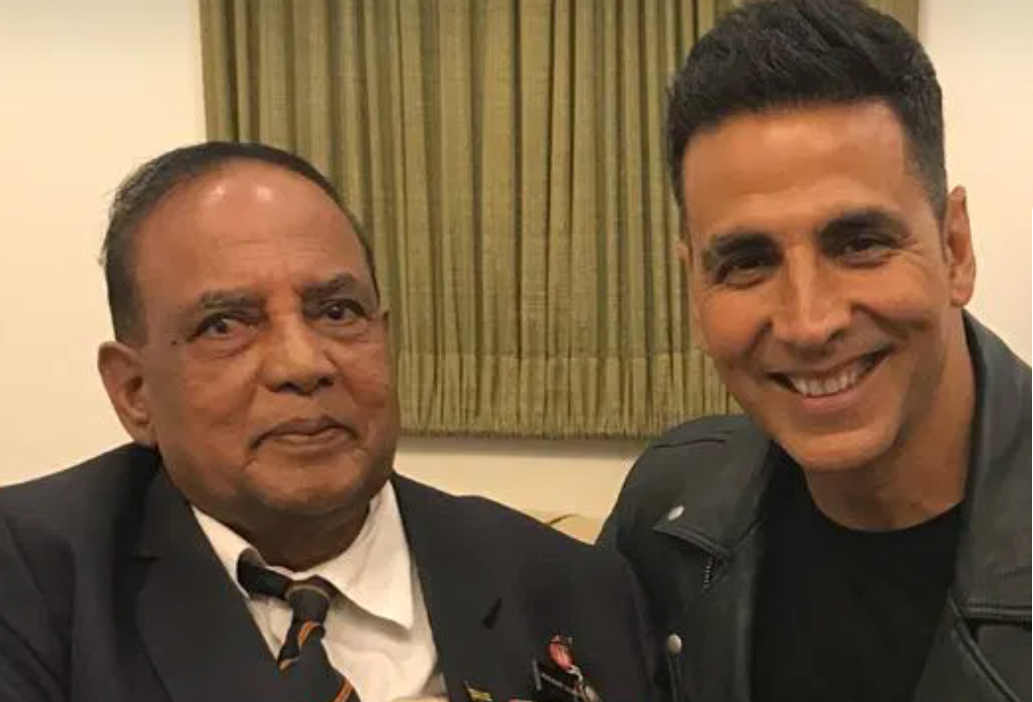


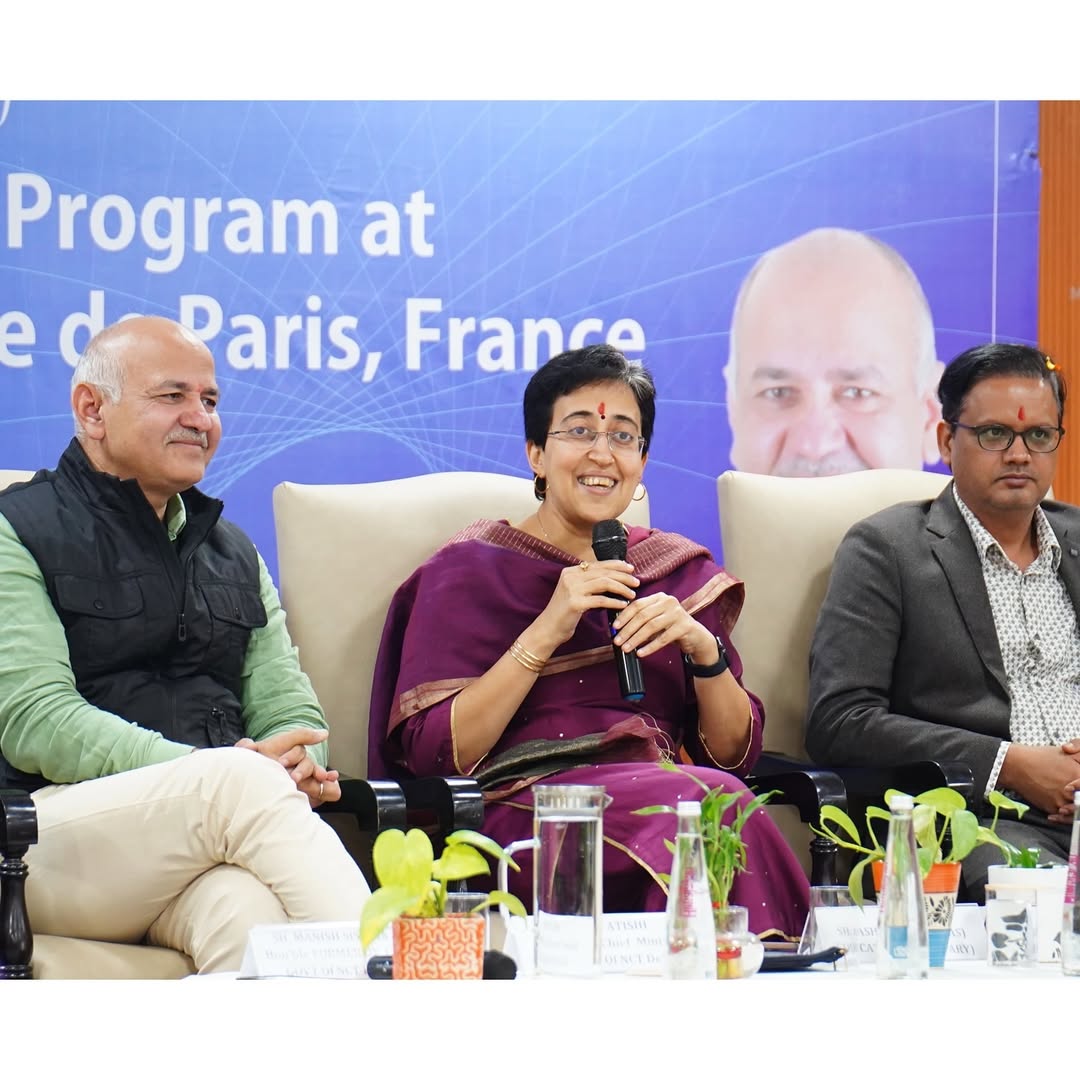




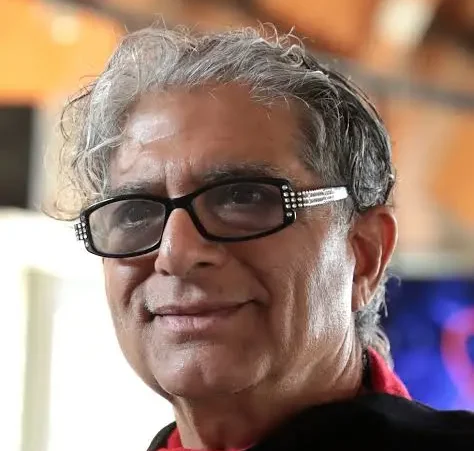
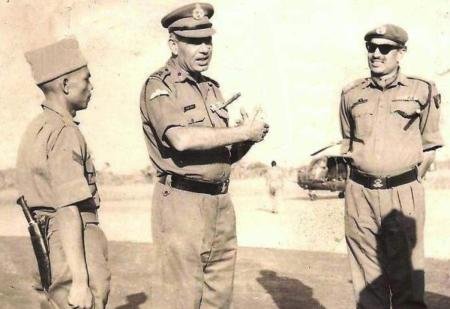


1 Comment